A Message of Support for Aafia from Imam Muhammad al-Asi
Muhammad H. al-'Asi
Jumada' al-Akhirah 04, 1436
Dr. Aafia Siddiqui's case is a burning ember that will continue to burn the conscience of the Muslims; and particularly the Muslims living in the United States. Her tragic plight exposes the secular government in Pakistan and the "Islamic" organizations: both share a common silence about her plight — a silence that amounts to complicity and a crime against humanity.Aafia Siddiqui: a victim of US political persecution and Muslim impotence*
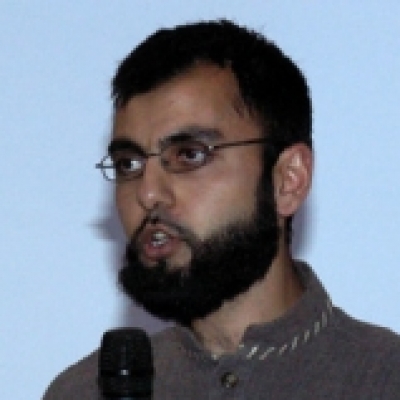 Fahad Ansari
Fahad Ansari
Shawwal 01, 1429
During the time of the Abbasids, news reached al-Mu'tasim, the khaleefah of the time, that a noble Muslim woman who was held captive by a Roman king in ‘Amouriyyah had been slapped by her captors, upon which she cried out, “O Mu’tasim!” Al-Mu’tasim responded to her cry with the words, “I am coming to respond to your plea, O sister, I am coming to respond to your plea.” He warned the Romans, “If you do not release that woman, I promise you, I will send an army against you. And my army will be so big that when the first soldiers reach your gates, the last ones will not have left my palace!” Al-Mu’tasim launched his attack upon which commenced the Battle of ‘Amouriyyah, in which this Muslim woman was rescued and in which the Muslims scored a decisive victory.
A thousand years later, we have uncounted sisters being held in the prisons of tyrannical rulers all over the world, in both the West and the Muslim world. Their tormented cries go unheard by an Ummah whose deafening silence is symbolic of its deadened hearts. There is one Muslim woman, however, whose captivity has caught the attention of the entire world and who has become a symbol of the global system of oppression that has come to be known as the ‘war on terror’. The harrowing case of MIT-educated Pakistani neuroscientist Dr AafiaSiddiqui has shaken the Muslim world like the case of no other prisoner. From seasoned activists to secular apolitical elders, the case has had a ripple effect throughout the Muslim community and may indeed be the catalyst that radicalises people and awakens the sleeping giant.
Background
Aafia Siddiqui was born in Karachi, Pakistan, on 2 March 1972, and spent much of her life in the US after moving to Texas in 1990 before enrolling at MIT. While at MIT she was heavily involved in da’awah work on campus. After her graduation, she continued to be actively involved in community and charity work, notably assisting prisoners and raising awareness and funds for the Muslims in Bosnia during the Balkan conflict in the mid-90s. After the attacks in September 2001, she and her family became victims of the American profiling system and were subjected to harassment by the US authorities. During this period in the US, she was also the victim of domestic violence by her abusive husband. Unable to tolerate the harassment any further, her husband moved the family back to Pakistan in 2002. Soon after their return to Pakistan, the couple became estranged. In December 2002 she decided to leave her children with her family in order to work in the US. She moved to the Baltimore area, where her sister was working.The name Aafia Siddiqui first came to public attention on March 18, 2003, when the FBI issued an alert requesting information about her. On approximately 28 March 2003, while on a short trip back to Pakistan, Aafia Siddiqui was on her way to Karachi airport with her three children, then aged 6 years, 5 years and 6 months, in order to catch a flight to Islamabad. It was at this point that the family disappeared. The Pakistani papers mentioned reports that she had been “picked up in Karachi by an intelligence agency” and “shifted to an unknown place for questioning.” Days later, however, Pakistani and US officials mysteriously backtracked, saying it was unlikely that she was in custody and denying any knowledge of or involvement in her disappearance.
Various theories about her disappearance started to appear in international and local publications. The first of these was on 23 June 2003, three months after her disappearance, in Newsweek. An investigative report, falsely calling her a microbiologist, said that she and her husband were part of an al-Qa’ida sleeper cell. In Baltimore she is alleged to have opened a mailbox for a suspected al-Qa’ida operative who is now in Guantanamo Bay.
In 2004 Pakistani papers quoted a Pakistani government spokesman who said that she had been handed over to US authorities in 2003. On 26 May 2004, US attorney general John Ashcroft and FBI director Robert Mueller III announced at a news conference that Aafia Siddiqui was one of seven suspects whom the FBI was looking for with suspected ties to al-Qa’ida. She was accused of being an al-Qa’ida operative and facilitator. In July 2004, publications such as Newsweek quoted the FBI as stating that she had visited Liberia in 2001 to buy conflict diamonds (also known as blood diamonds) in order to finance al-Qa’ida’s biological and chemical weapons programme.
Siddiqui and her children remained missing and nothing was heard about them for four more years. It was only in July, after her case had started gaining political notoriety, that she suddenly reappeared in Afghanistan.
The Grey Lady of Bagram
On 7 July, at a press conference in Islamabad, British journalist and Cageprisoners patron Yvonne Ridley claimed that an unidentified Pakistani woman was being held in solitary confinement at the US-run detention centre on Bagram airbase (Afghanistan) since 2004. Ridley said that the woman’s prison number was 650, adding that other prisoners had spoken of hearing the bloodcurdling terrified screams of a woman in the male-only prison.“I call her the Grey Lady of Bagram because she is almost a ghost, a spectre whose cries and screams continue to haunt those who heard her,” Ridley said. “We don’t know her identity, we don’t know her state of mind and we don’t know the extent of the abuse or torture she has been subjected to.”
Although the identity of Prisoner 650 remains a mystery, Ridley’s speculation that she might be Aafia Siddiqui triggered waves of demonstrations, letters to newspaper editors ,and inquiries by politicians into the matter. The Pakistan foreign ministry was emphatic about its information from the US government that it was not holding any Pakistani woman at Bagram. But the issue refused to die down and received international media coverage; for Pakistanis, their izzat (honour) was at stake. This was unlike all the previous prisoners “renditioned” to the US as part of the war on terror: this was a helpless Pakistani Muslim woman with three young children.
Re-emergence
On 4 August, the US government announced that Aafia Siddiqui had been extradited to the US from Afghanistan to face charges of attempting to kill US officers and employees and of assaulting US officers and employees. Federal prosecutors alleged that on 17 July, Afghan police officers noticed her loitering outside the compound of the governor of Ghazi. The federal indictment against her states that the Afghan police officers who arrested her found suspicious items in her handbag, including notes referring “to the construction of ‘dirty bombs,’ chemical and biological weapons, and other explosives” as well as descriptions of various landmarks in the United States, and “substances that were sealed in bottles and glass jars.”US federal prosecutors further allege that, the day after her arrest, while still in Afghan custody, she grabbed a US army M-4 rifle that a soldier had left lying around, and fired it at a team of US soldiers and federal intelligence agents who were visiting the Afghan police compound where she was being held. Nobody was killed in the scuffle, but she was shot and wounded by a US officer. Prosecutors allege that despite being wounded she continued to struggle with officers, and struck and kicked them before losing consciousness.
She was then held for a further two weeks before being extradited to the US.
Kidnapping and Torture?
The alternative version of events put forward by Aafia Siddiqui and her lawyers, which is rapidly gaining credence, is that she and her children were kidnapped by the Pakistani ISI in March 2003 and transferred to US custody, where they have been ever since. While in custody, she claims that she was repeatedly tortured and raped.This has been the account consistently given by her family since March 2003. Her mother, Ismet, claimed at the time that a few days after her disappearance a man on a motorcycle arrived at her house in a leather suit and helmet and told her that her daughter was being held and that she should keep quiet if she ever wanted to see her daughter and grandchildren again. Aafia’s sister Fauzia says that in 2004 she was told by Syed Faisal Saleh Hayat, then interior minister, that her sister had been released and would return home shortly.
For five years Cageprisoners, a London-based Islamic human-rights organisation, has spearheaded the campaign to free Aafia Siddiqui and her children. It seems highly coincidental that, within two weeks of the press conference in Islamabad of Cageprisoners’ patron Yvonne Ridley, Aafia Siddiqui was apprehended after allegedly avoiding captivity for five years, despite tremendous interest from both Pakistani and American intelligence agencies.
The charges against her also appear to be a sham. It is ridiculous to suppose that an individual as intelligent as Aafia Siddiqui, someone accused of being al-Qa’ida’s microbiologist, would loiter outside a governor’s compound with her son and a mobile explosives kit. It is also highly improbable, as former Guantanamo detainee Moazzam Begg points out, that a woman as frail and small as she is could lift a US M-4 rifle without anyone noticing, and then put up such a struggle against American soldiers whom he describes as “huge”.
Further, it is notable that despite being accused of being a senior al-Qa’ida operative and being allegedly apprehended with the material it is claimed she had, she has not been charged with any terrorism-related offences. At a time and in a country where to be even suspected of being connected to a terror suspect can get one a twenty-year sentence, this omission gives rise to a reasonable suspicion that all is not as it seems.
One must also consider the fact that other suspects to whom she was linked, such as Majid Khan and Ali ‘Abd al- ‘Aziz Ali, also disappeared from Karachi at almost precisely the same time as she did. They did not reappear until September 2006, after their transfer to Guantanamo Bay from CIA custody. For more than three years they had been secretly held by the CIA or one of the CIA’s proxies. Like many others, they had been arrested by the Pakistani intelligence services and handed over to CIA. When one realizes that the people she was allegedly linked to were themselves held in secret detention, and that the Pakistani intelligence services were covertly arresting dozens of people in Karachi during this period, Aafia Siddiqui’s own version of events gains plausibility.
Children
One particularly worrying aspect of this case is the whereabouts of Siddiqui’s children, who are all US citizens. To date the whereabouts of the two youngest children, who should now be about 5 and 10 years old, are unknown. The oldest, Ahmed (11), was recently released from Afghan custody into his aunt’s care. According to an Afghan interior ministry official quoted in the Washington Post, Ahmed Siddiqui was held briefly by the interior ministry after he was arrested with his mother, and then transferred to the custody of the Afghan National Directorate of Security (NDS), the country’s intelligence agency, which is notorious for its brutal treatment of detainees. Aafia Siddiqui has said that her younger son died in custody; her five-year-old daughter remains unaccounted for.Medical Condition
Siddiqui’s lawyers say that she has been physically and psychologically scarred. After she was shot, more than a week passed before she received any medical treatment. She has suffered multiple bullet wounds and extensive surgical incisions, resulting in multiple layers of external and internal stitching. She had also been told that she lost part of her intestine during the surgery to remove the bullets. One of her kidneys was also removed while in US custody. She is now refusing to attend court hearings or see her lawyers, because she is unhappy with the prospect of invasive strip-searches.Conclusion
Dr Aafia Siddiqui’s situation is a badge of shame which we must all wear. For her there is no al-Mu’tasim to cry out to. There is no army to go out to rescue her and no state in which she can seek refuge. Even a demonstration in support of her on a Friday evening at iftar time during Ramadan, the month of action and victory, only drew a few hundred Muslims out to express their solidarity with their sister who has had to spend yet another Ramadan alone in US custody.This sister has only has her iman to keep her steadfast. In a brilliant piece on her plight by American Muslim writer Abu Sabaya who attended her court hearing (‘The Aafia Siddiqui I Saw’), the classical scholar Ibn al-Qayyim is quoted as saying that a person rises in his closeness to Allah until:
... there remains only one obstacle from which the enemy calls him from, and this is an obstacle that he must face. If anyone were to be saved from this obstacle, it would have been the Messengers and Prophets of Allah, and the noblest of His Creation. This is the obstacle of Satan unleashing his troops upon the believer with various types of harm: by way of the hand, the tongue and the heart. This occurs in accordance with the degree of goodness that exists within the believer. So,the higher he is in degree, the more the enemy unleashes his troops and helps them against him, and overwhelms him with his followers and allies in various ways. There is no way around this obstacle, because the firmer he is in calling to Allah and fulfilling His commands, the more the enemy becomes intent upon deceiving him with foolish people. So he has essentially put on his body armor in this obstacle, and has taken it upon himself to confront the enemy for Allah’s Sake and in His Name, and his worship in doing so is the worship of the best of worshippers.
Abu Sabaya concludes his piece with the following observation:.
Despite Aafia’s apparent physical weakness and frailty, there was a certain ‘izzah (honor) and strength that I felt emanating from her the entire time. Everything from the way she forcefully shook her hand at the judge when the prosecutor would lie, to how she was keen to wear her hijab on top of her prison garments despite horrible circumstances that would makehijab the last thing on most people’s minds, to the number of FBI agents, US Marshals, reporters, officials, etc. who were all stuffed in this small room to observe this frail, weak, short, quiet, female “security risk” - everything pointed to the conclusion that the only thing all of these people were afraid of was the strength of this sister’s iman.

Fahad Ansari
Muslim impotence*?
NO, MUSLIM COWARDICE, INHUMANITY AND HYPOCRISY!
https://crescent.icit-digital.org/authors/muhammad-h-al-asiA Monthly Newsmagazine from Institute of Contemporary Islamic Thought (ICIT)
Works
The Ascendant Qur'an: Realigning Man to the Divine Power Culture - Volume 14
Muhammad H. al-'Asi
Jumada' al-Akhirah 19, 1440
Throughout the noble Qur’an and especially in this surah, we learn about the struggles of Allah’s Prophets (AS). They faced trials and tribulations, even exile and death, but they nonetheless upheld the principle of maintaining justice in society. It was through such sacrifices that Allah’s laws were ultimately implemented. Today injustices have been institutionalized at every level in society. The rich and powerful exploit the weak and poor. The wealth gap between the two has now reached an all-time extreme — yet no one in the public airwaves characterizes this as “extremism.” Far from recognizing that this is the direct result of man-made policies, the oppressors and tyrants blame the victims for their misfortune.The Ascendant Qur'an: Realigning Man to the Divine Power Culture - Volume 13
Muhammad H. al-'Asi
Sha'ban 15, 1439
From its contents we can discern that Surah al-A‘raf, like the surah preceding it, was revealed in Makkah. The time period of revelation also appears to be the same: near the end of the Prophet’s mission in Makkah and in preparation for the Hijrah to Madinah. This is apparent from the reference to the Children of Israel and their argumentative behavior vis-à-vis Musa (AS). The Prophet (SAL) and the Muslims with him were about to encounter Banu Isra‘il, for the first time as an organized opposition, upon their arrival in Madinah.The Ascendant Qur'an: Realigning Man to the Divine Power Culture - Volume 12
Muhammad H. al-'Asi
Rabi' al-Thani 01, 1439
In his monumental tafsir, The Ascendant Qur’an: Realigning Man to the Divine Power Culture, Imam Muhammad al-‘Asi guides us through these intricacies and alerts us to the dangers of human-tampered foods and meats. It is his discussion of such vital issues that makes this tafsir unique. The mufassirs of earlier tafsirs had not confronted the issues of genetically modified foods or hormone- and antibiotic-injected animals, as such practices — and the human “gods” who manage them — were either nonexistent or not widespread at the time.The Ascendant Qur'an: Realigning Man to the Divine Power Culture - Volume 11
Muhammad H. al-'Asi
Rajab 04, 1438
In this volume of the tafsir, The Ascendant Qur’an: Realigning Man to the Divine Power Culture, by Imam Muhammad H al-‘Asi, the last portion of Surah al-Ma’idah (ayat 82–120) and the first 32 ayat of Surah al-An‘am are covered. Surah al-Ma’idah was revealed in Madinah. As for Surah al-An‘am, a Makkan surah, there is general consensus among scholars that it was revealed in the last year of the Prophet’s (SAW) mission in Makkah before he was forced to seek sanctuary in Madinah.Audio
Hadiths that are legitimizing the Abbasid Dynasty
Muhammad H. al-'Asi
Muharram 20, 1438
We’ve been trying to do justice to the issue of hadith. This is an area that has not been approached by those who qualify to approach it. In the previous khutbahs we spoke about how the Umawi dynasty contrived hadiths to serve its own purposes and to try to convince people of its legitimacy which it did not have; but this did not stop there. We go from the contrived hadiths of Bani Umayyah to the contrived hadiths of Bani Al Abbas.The Ascendant Qur'an: Realigning Man to the Divine Power Culture - Volume 10
Muhammad H. al-'Asi
Shawwal 27, 1437
Imam al-‘Asi has rendered and continues to render a great service to the Ummah by explaining the Qur’anic ayat in such a way as to have them explain today’s situation. While the Qur’an provides narratives of earlier people, these are not meant as mere stories from history but as timeless lessons so that we may avoid the fate of our predecessors by ordering our lives in conformity with Allah’s (SWT) commands. The lessons in this sequence of ayat from Surah al- Ma’idah are especially applicable today as they talk about authority and divinity. At a time when man-made laws have run amok causing havoc with the lives of the vast majority of humanity, the Qur’anic guidance comes to the rescue of committed Muslims, and by extension, a wayward humanity. It is for us to internalize these lessons by renewing our covenant with Allah (SWT) and His prophet (SAW).The Ascendant Qur'an: Realigning Man to the Divine Power Culture - Volume 9
Muhammad H. al-'Asi
Muharram 01, 1437
In this ninth volume of the multi-volume tafsir series, Imam Muhammad al-‘Asi has dealt with only the first 40 ayat of Sura al-Mai’dah. These ayat relate to important injunctions requiring detailed treatment, and hence the explanations here enable readers to understand the divine commands with the motivation to go out there and make some changes. Those readers that have followed the tafsir series thus far would appreciate the depth of treatment accorded to the Qur’anic ayat herein. Imam al-‘Asi has taken special care to link the divine commands to today’s reality and identify the present-day covenant violators and oppressors.Audio
Saudis Indirectly Hatch them, Zionists Indirectly Butcher them
Muhammad H. al-'Asi
Dhu al-Qa'dah 13, 1436
Video
Commemoration of 2014 Al Quds Day Martyrs Ft. Imam Asi on PRESSTV
Muhammad H. al-'Asi
Shawwal 11, 1436
Audio
Speaking Truth to Power with Imam Muhammad Al Asi on Truth Jihad Radio with Kevin Barrett
Muhammad H. al-'Asi
Ramadan 26, 1436
Video
Ramadhan- A contemporary view Part 4 with Imam Muhammad Al Asi on ITV
Muhammad H. al-'Asi
Ramadan 25, 1436
Video
Ramadhan- A contemporary view Part 3 with Imam Muhammad Al Asi on ITV
Muhammad H. al-'Asi
Ramadan 18, 1436
Video
Ramadhan- A contemporary view Part 2 with Imam Muhammad Al Asi on ITV
Muhammad H. al-'Asi
Ramadan 10, 1436
Video
Ramadhan- A contemporary view Part 1 with Imam Muhammad Al Asi on ITV
Muhammad H. al-'Asi
Ramadan 04, 1436
Audio
Islam is Interactive not Isolationist not Terrorist Part 2
Muhammad H. al-'Asi
Sha'ban 25, 1436
Video
Tribute to an Islamic Leader - Imam Khomeini Part 6 and ISIS
Muhammad H. al-'Asi
Sha'ban 19, 1436
Video
Love for the Prophet (s)
Muhammad H. al-'Asi
Rajab 26, 1436
So this fondness, this love (and) this affection for Allah is demonstrated through our attachment, through our identifying with and to assuming the character of our Prophet Therefore it is timely that we recapture this character that we struggle and we strive to emulate.Book Review
Writing on the wall for Bani Saud
Muhammad H. al-'Asi
Rajab 12, 1436
The Bani Saud (aka the House of Saud) seems to be heading for a fall. One generation shuffling to its grave, the other at loggerheads and great discontent internally plus massive failures externally have all combined to make its end nigh, says author Zafar Bangash.A Message of Support for Aafia from Imam Muhammad al-Asi
Muhammad H. al-'Asi
Jumada' al-Akhirah 04, 1436
Dr. Aafia Siddiqui's case is a burning ember that will continue to burn the conscience of the Muslims; and particularly the Muslims living in the United States. Her tragic plight exposes the secular government in Pakistan and the "Islamic" organizations: both share a common silence about her plight — a silence that amounts to complicity and a crime against humanity.Audio
The Root of Islamophobia Part 2
Muhammad H. al-'Asi
Jumada' al-Akhirah 02, 1436
We come to the political aspect of this Islamophobia and we find (that) all hell breaks loose when Muslims seeks self-determination, self- rule (and) self-governance. Why is that? These are things that are enshrined in International Law, in the charters and in the chapters of the United Nations literature and I don’t think there’s anything in religious texts of whichever religion that argue against a people deciding to have their own self-determination.Audio
The Root of Islamophobia Part 1 with Q&A
Muhammad H. al-'Asi
Jumada' al-Ula' 17, 1436
And if Islam happens to be a voice for equality and peace and justice then Islam becomes an obstacle; and when Islam becomes an obstacle, that obstacle has to be removed from this highway of interests and to remove it, it has to be criminalized and Muslims have to be dehumanized to become the easy targets for warfare. This is what we see happening in today’s world.Audio
Kufr and False Hadiths
Muhammad H. al-'Asi
Jumada' al-Ula' 01, 1436
In the world that we are part of today this strain of Muslims, as we said previously, that has come out with its dangerous, lethal and murderous attitude- of course supported by those who are inimical to Islam behind the scenes- have a root to them. They just didn't appear all of a sudden from nowhere. No. Tracing this disease back to its pathological roots, we find that in our common history there are some personalities that began this accusation of other Muslims being Kafirs. We retraced it in one channel two one of the Fuqaha’ in Islam, Ahmad ibn Hanbal (or) at least those who follow him from early on. Then there's another personality, ibn Taymiyah. Ibn Taymiyah is another person who along with his scholarly accomplishments, (may Allah have mercy on all these Muslims who preceded us), and maybe in their own capacity tried to explain what they understood but what they understood was wrong in this area and therefore what they explained was also wrong in this area.Audio
Historical Roots of ISIS
Muhammad H. al-'Asi
Rabi' al-Thani 23, 1436
This issue of kufr and takfir is probably on many minds and we have been trying to trace it and to explain it and to expose it. Everyone who’s someone is commenting on the atrocities and the bloodshed and the acts of savagery that have been committed in the name of Islam against Muslims and non Muslims alike. This khutbah shall be another contribution for our heightened consciousness of Allah’s authoritative power presence in our affairs, in other words, to reinforce the taqwa in us. We want to mention to you that the word kufr and its derivatives is to be found or mentioned in about 525 or 535 times (in the Qur’an). One source says 525 (and) another source says 535. Whatever the case is, the word kufr is mentioned more than 500 times in the Qur’an. This is a very important word obviously.Audio
Interview: 36th Anniversary of the Islamic Revolution in Iran with Imam Muhammad Al Asi
Muhammad H. al-'Asi
Rabi' al-Thani 16, 1436
Audio
Muslims are not Terrorists
Muhammad H. al-'Asi
Rabi' al-Thani 01, 1436
Allah says in a manner consoling the Prophet (and) with a tone of advice وَلَقَدْ نَعْلَمُ أَنَّكَ يَضِيقُ صَدْرُكَ بِمَا يَقُولُونَ We know that your chest feels constricted due to what they say (or) you feel tight in your chest because of what they are saying. (Surah Al Hijr verse 97) We know these are Allah’s words and the reference is to Allah. Allah’s speaking to the Prophet. The antidote to this is the following completion of the ayah فَسَبِّحْ When you feel like that, (Allah is saying), the consequence of that should be say subhanAllah… (Surah Al Hijr verse 98) In the case of the Prophet it is more than just verbalizing a word, it is actualizing the meaning- something that is lost on many Muslims. بِحَمْدِ رَبِّكَ … praise Allah … (Surah Al Hijr verse 98)Video
Islamophobia on Press TV with Imam Muhammad Al Asi
Muhammad H. al-'Asi
Rabi' al-Awwal 24, 1436
Video
World Congress on Extremism & Takfiri Movements Ft. Imam Asi on PressTV
Muhammad H. al-'Asi
Safar 01, 1436
Audio
Absence of hostilities between Imams and Sahabis Part 2
Muhammad H. al-'Asi
Dhu al-Hijjah 01, 1435
Audio
Absence of hostilities between Imams and Sahabis Part 1
Muhammad H. al-'Asi
Dhu al-Qa'dah 03, 1435
Video
Imam Al Asi at the Al Awda Anti Zionist Demonstration in Washington DC
Muhammad H. al-'Asi
Ramadan 22, 1435
Audio
Interview on The night of power and proportionality with Imam Muhammad Al Asi
Muhammad H. al-'Asi
Ramadan 20, 1435
Video
Political Aspects of an Islamic Identity and Imam Khomeini
Muhammad H. al-'Asi
Sha'ban 09, 1435
Audio
Interview : A Glimpse into the Prophet's character with Imam Muhammad Al Asi
Muhammad H. al-'Asi
Rajab 27, 1435
Audio
Umar's leadership Vs The Rulers of Arabia Part 2
Muhammad H. al-'Asi
Jumada' al-Akhirah 25, 1435
Audio
Umar's leadership Vs The Rulers of Arabia Part 1
Muhammad H. al-'Asi
Jumada' al-Akhirah 11, 1435
The Ascendant Qur'an: Realigning Man to the Divine Power Culture - Volume 8
Muhammad H. al-'Asi
Jumada' al-Akhirah 01, 1435
The Ascendant Qur'an: Realigning Man to the Divine Power Culture is the first tafsir (exegesis) to be written directly in the English language. It is also the first tafsir to be written specifically to reinterpret the lessons of the noble Qur'an for the needs of Muslims living in the modern world, and particularly for those active in the contemporary Islamic movement. This eight volume concludes the explanation of Surah al-Nisa', going from verse 87 through 176. In particular, it addresses issues related to dual-loyalty (nifaq), including the following topics: Muslim-on-Muslim violence as an indicator of nifaq, how jihad and hijrah are relevant to each other, no favoritism in the adjudication of justice, how shirk gets dressed up to prevent God's justice, how nifaq affects Muslim attitudes to social justice, the recalcitrant Yahudi, and the Holy Trinity.Audio
Poll: Most Americans value privacy over anti-terror protections
Muhammad H. al-'Asi
Rabi' al-Thani 03, 1435
Audio
The Intrinsic meanings of the Hajj by Imam Muhammad Al Asi on IRIB
Muhammad H. al-'Asi
Dhu al-Hijjah 10, 1434
Video
The NYC targeting Muslims by Imam Muhammad Al Asi on PressTV
Muhammad H. al-'Asi
Dhu al-Qa'dah 08, 1434
Audio
Ali's virtues without asabiyah
Muhammad H. al-'Asi
Dhu al-Qa'dah 07, 1434
All Muslims agree to the status and the exceptional character of Al Imam Ali (radi Allahu anhu wa alayhi as salaam). You’d think if that’s the case then why are Muslims suffering from a Sunni-Shi’i sectarianism?! Its simple- it’s because we don’t express ourselves to each other in a way that meets the standard and the quality of this ayah. We’re going to cover this common Muslim knowledge that all Muslims share and we’re going to try to express it in a manner that meets the meaning of the ayah: "… be aware of Allah’s corrective power presence and express yourself as you are expressing facts and the truth." (Surah Al Ahzaab verse 70)Video
The Crisis in Syria by Imam Muhammad Al Asi & Masud Shadrajeh on Sahar TV
Muhammad H. al-'Asi, Masud Shadrajeh
Dhu al-Qa'dah 05, 1434
Audio
Sunnis and Shiahs_Not who they think they are
Muhammad H. al-'Asi
Shawwal 29, 1434
We mentioned earlier, many times, that asabiyah (or) this self centeredness- whether it’s a tribal self centeredness or whether it’s a nationalistic self centeredness or whether it’s a racist self centeredness, it comes in many forms; whatever it is- its an enemy to the committed Muslims because it plays itself out in warfare just like we are seeing in the real world. You can place these khutbahs in the context of the killings that are going on, explosions, pass by shootings, throwing hand grenades, opening fire randomly in certain areas just because they belong to Sunnis or Shi’is or whatever. All of this is meant to resuscitate this asabiyah that we have been exposing so at least we don’t fall prey to their plans.Audio
In a world of post Islamic Asabiyah- Ali had none
Muhammad H. al-'Asi
Shawwal 22, 1434
As you all know, the atmospherics are charged nowadays almost in a global fashion and the centre of attention happens to be the geographical area called Syria and each block of interest approaches the issue from its own selfish interpretation of that developing civil war. We have tried our best in the past months to chip away at the basic ingredients that have been mixed together to give us the misunderstandings, the ignorance, the tension and from that the bad feelings and the hostilities and the wars that are currently costing innocent people their lives- innocent people regardless of their geographical areas and regardless of their religious persuasions. They’re innocent!Video
Americans living behind an iron curtain by Imam Muhammad Al Asi on PressTV
Muhammad H. al-'Asi
Shawwal 16, 1434
Audio
Uthman's Assassination- Disagreements not hatred
Muhammad H. al-'Asi
Shawwal 15, 1434
We covered a good amount of territory leading up to the assassination of the third successor to Allah’s Prophet; that assassination can be recorded as the time when asabiyah, (that we’ve spoken about aplenty), became opposing political positions. Some people refer to it as a fitnah (or) a sedition along with the elements of disagreement, divisions and then disputes all the way to carrying arms and fighting against our own selves.Audio
Transitioning from Uthman's era
Muhammad H. al-'Asi
Shawwal 08, 1434
So we reached in our journey of pertinent knowledge the point where Uthman (radi Allahu anhu), the third successor to Allah’s Prophet, now assumed the ultimate decision making position in the Ummah. We spoke throughout these khutbahs of an element as important and as critical and defining as it is (that) is almost absent from the language and the discourse and the presentations of khutaba’ and Ulema’ and fusaha’ and that issue is the issue of asabiyah.Audio
From Asabiyah to Political Parties
Muhammad H. al-'Asi
Shawwal 01, 1434
You and I know that there is a very serious and deadly type of program to have Muslims cancel themselves out and one of the most important factors in this overall scheme is the factor of Sunnis verse Shi’is and vice versa and we said previously that we are going to visit this issue at its roots, at it origins (and) in its genesis so that we can try to diffuse it with all of the implications it has gained throughout all of these years and centuries.Audio
Eid Al Fitr 2013
Muhammad H. al-'Asi
Shawwal 01, 1434
You should emerge from this month in the same fashion that a person emerges from an exercise session. Those who are into sports will go into a gym or an exercise session and build their muscles or their aerobic capacity; in this month of Ramadhan we have built our determination and our willpower. Anyone who has fasted or has been fasting and cannot feel the result of a will power of steel and a determination of iron has missed one of the most significant accomplishments of this fast. This will power and determination reports only to Allah and that is the relationship of taqwa.Video
Hajj on Ramadhan Journey Part 29 with Imam Muhammad Al Asi on ITV
Muhammad H. al-'Asi, Afeef Khan
Ramadan 29, 1434
Video
Hajj on Ramadhan Journey Part 28 with Imam Muhammad Al Asi on ITV
Muhammad H. al-'Asi, Afeef Khan
Ramadan 28, 1434
Video
Laylat Al Qadr on Ramadhan Journey Part 27 with Imam Muhammad Al Asi on ITV
Muhammad H. al-'Asi, Afeef Khan
Ramadan 27, 1434
Video
Understanding the Arab Spring Part 6 on Finding Me with Imam Muhammad Al Asi on ITV
Muhammad H. al-'Asi
Ramadan 26, 1434
Video
Al Quds Day on Ramadhan Journey Part 26 with Imam Muhammad Al Asi on ITV 2013
Afeef Khan, Muhammad H. al-'Asi
Ramadan 26, 1434
Video
Women's Status on Ramadhan Journey Part 25 with Imam Muhammad Al Asi on ITV
Muhammad H. al-'Asi, Afeef Khan
Ramadan 25, 1434
Video
Women's Status on Ramadhan Journey Part 24 with Imam Muhammad Al Asi on ITV
Muhammad H. al-'Asi, Afeef Khan
Ramadan 24, 1434
Audio
Al Quds Day 2013
Muhammad H. al-'Asi
Ramadan 24, 1434
he words from Allah to us in Surah Al Isra’, the seventeenth surah of the Qur’an, which we visited on previous days like this, yawm Al Quds (or) the day of Al Quds are at the beginning of the surah. In the timeframe that we have for the khutbah and due to the nature of this day weather wise and organisation wise we will try to paddle softly through some of these meanings and we’ll try to look at them in a refreshing way. Many times we read this book obviously thinking about it’s meanings as its followers- as committed Muslims; we don’t give much thought to how others who may be reading this- and believe you me there are others we are reading the same ayaat who are not committed to Allah- so the ayah begins (and) one of the meanings that we may consider here is when Allah says: Glory be to Allah (or) Exalted is Allah that He has taken His subject His abd on a night journey or on a masterful journey…Video
Women's Status on Ramadhan Journey Part 23 with Imam Muhammad Al Asi on ITV
Muhammad H. al-'Asi, Afeef Khan
Ramadan 23, 1434
Video
Women's Status on Ramadhan Journey Part 22 with Imam Muhammad Al Asi on ITV
Muhammad H. al-'Asi, Afeef Khan
Ramadan 22, 1434
Video
Women's Status on Ramadhan Journey Part 21 with Imam Muhammad Al Asi on ITV
Muhammad H. al-'Asi, Afeef Khan
Ramadan 21, 1434
Video
Women's Status on Ramadhan Journey Part 20 with Imam Muhammad Al Asi on ITV
Muhammad H. al-'Asi, Afeef Khan
Ramadan 20, 1434
Video
Women's Status on Ramadhan Journey Part 19 with Imam Muhammad Al Asi on ITV
Muhammad H. al-'Asi, Afeef Khan
Ramadan 19, 1434
Video
The Role of the Imam and the Masjid on Finding Me with Imam Muhammad Al Asi on ITV
Muhammad H. al-'Asi
Ramadan 18, 1434
Video
Jihad on Ramadhan Journey Part 18 with Imam Muhammad Al Asi on ITV
Muhammad H. al-'Asi, Afeef Khan
Ramadan 18, 1434
Video
Bani Israeel on Ramadhan Journey Part 17 with Imam Muhammad Al Asi on ITV
Muhammad H. al-'Asi, Afeef Khan
Ramadan 17, 1434
Audio
Asabiyah's Complexities
Muhammad H. al-'Asi
Ramadan 17, 1434
The Prophet of Allah passed away and like we said when he passed away there were multitudes of people who jumped on the Islamic bandwagon. This was in the final couple of years of the Prophet’s lifetime. Here we had over a hundred thousand who were not from the Muhajirin (radi Allahu anhum) who were not from the Ansar (radi Allahu anhum) who were not from amongst those who struggled for the past twenty years with Allah’s Prophet. So now we had new dynamics that are at work and because we have what is beginning to look like a civil war among Muslims we have to go to these issues to deal with them at the source because the ignorance of these source issues is the material of today’s war making among the Muslims.Video
Bani Israeel on Ramadhan Journey Part 16 with Imam Muhammad Al Asi on ITV
Muhammad H. al-'Asi, Afeef Khan
Ramadan 16, 1434
Video
Shirk on Ramadhan Journey Part 15 with Imam Muhammad Al Asi on ITV
Muhammad H. al-'Asi, Afeef Khan
Ramadan 15, 1434
Video
Kufr on Ramadhan Journey Part 14 with Imam Muhammad Al Asi on ITV
Muhammad H. al-'Asi, Afeef Khan
Ramadan 14, 1434
Video
Tafseer on Ramadhan Journey Part 13 with Imam Muhammad Al Asi on ITV
Muhammad H. al-'Asi, Afeef Khan
Ramadan 13, 1434
Video
Tafseer on Ramadhan Journey Part 12 with Imam Muhammad Al Asi on ITV
Muhammad H. al-'Asi, Afeef Khan
Ramadan 12, 1434
Video
The Wealth fast on Ramadhan Journey Part 11 with Imam Muhammad Al Asi on ITV
Muhammad H. al-'Asi, Afeef Khan
Ramadan 11, 1434
Video
The Wealth fast on Ramadhan Journey Part 10 with Imam Muhammad Al Asi on ITV
Muhammad H. al-'Asi, Afeef Khan
Ramadan 10, 1434
Audio
Asabiyah into Riddah
Muhammad H. al-'Asi
Ramadan 10, 1434
This khutbah is an addition to the other khutbahs in which we are trying to take the raw material (and) the basics out of which some people want Muslims to be divided and Muslims to have negative feelings towards Muslims and then eventually Muslims standing off against each other in positions of animosity and blood shedding.Video
Allahs closeness on Ramadhan Journey Part 9 with Imam Muhammad Al Asi on ITV
Muhammad H. al-'Asi, Afeef Khan
Ramadan 09, 1434
Video
The objective on Ramadhan Journey Part 8 with Imam Muhammad Al Asi on ITV
Muhammad H. al-'Asi, Afeef Khan
Ramadan 08, 1434
Video
The first Ramadhan on Ramadhan Journey Part 7 with Imam Muhammad Al Asi on ITV
Muhammad H. al-'Asi, Afeef Khan
Ramadan 07, 1434
Video
Ramadhan on Ramadhan Journey Part 6 with Imam Muhammad Al Asi on ITV
Muhammad H. al-'Asi, Afeef Khan
Ramadan 06, 1434
Video
Poverty on Ramadhan Journey Part 5 with Imam Muhammad Al Asi on ITV
Muhammad H. al-'Asi, Afeef Khan
Ramadan 05, 1434
Video
Exemptions on Ramadhan Journey Part 4 with Imam Muhammad Al Asi on ITV 2013
Afeef Khan, Muhammad H. al-'Asi
Ramadan 04, 1434
Video
Taqwa on Ramadhan Journey Part 3 with Imam Muhammad Al Asi on ITV
Muhammad H. al-'Asi, Afeef Khan
Ramadan 03, 1434
Audio
Avoiding Asabiyah's comeback
Muhammad H. al-'Asi
Ramadan 03, 1434
This is the first Jum’ah in the month of Ramadhan and it has been our method to try to bring the meanings of Ramadhan into the conscience area in our lives. This Ramadhan we will part with that method simply because there’s an issue of life and death, there’s an issue of conflict and wars, there's an issue of tension and misunderstanding that has set in that is disturbing societies and countries in the Islamic hemisphere of the world. So we will continue to cover this area that has become an area of argumentation and then an area of alienation and then of tension among the Muslims. We will try to continue where we left off bearing in mind the ayah of consolidation and togetherness in Surah Aal ImranVideo
Taqwa on Ramadhan Journey Part 2 with Imam Muhammad Al Asi on ITV
Muhammad H. al-'Asi, Afeef Khan
Ramadan 02, 1434
Video
Fasting on Ramadhan Journey Part 1 with Imam Muhammad Al Asi on ITV
Muhammad H. al-'Asi, Afeef Khan
Ramadan 01, 1434
Video
Understanding the Arab Spring Part 5
Muhammad H. al-'Asi
Sha'ban 26, 1434
As you may know, the developments that are taking place in Syria and now with the recent events unfolding in Egypt are the focus of attention for Muslims and non- Muslims alike. The issue there has become in certain areas, especially in Syria, an issue of divisiveness and polarization and sectarianism and bad feelings Much of the facts, (we think), get lost in the presentation of what's happening there. We're going to try to, (as much as possible like a brother of yours), walk through the events there placing emotionalism aside and guided by the facts and the truth as much as possible.Audio
The third Islamic party- The Hashimis
Muhammad H. al-'Asi
Sha'ban 12, 1434
Just a very brief recap of what was previously encountered- we said that there is an asabiyah that was submerged in the psyche or in the social mind of the people around the Prophet- it doesn't matter who they were, generally speaking that asabiyah was submerged. There were times that this asabiyah expressed itself and we covered some incidents along those lines. We said that Al Muhajirin and Al Ansar (radi Allahu anhum) had their exchange of words and their exchange views on the day the Prophet was to be buried and in the exchange of statements we sensed that there is this asabiyah but it wasn't an asabiyah that was operational and it wasn't an asabiyah that was divisive.Audio
Muhajireen and Ansar- Political parties or Asabiyyah
Muhammad H. al-'Asi
Sha'ban 05, 1434
So these Muhajirin were of the mindset that the Prophet did not categorically (state) which means the Prophet never made a statement that could be understood by absolutely everyone that a particular person is a leader after him therefore these people began discussing who's going to be the leader after the Prophet. We know this is going to be a matter of contention by certain individuals but we know why. We say this with humility and with a sense of responsibility and brotherhood because if the Prophet had made it beyond the shadow of a doubt clear who the successor to him is we wouldn't have had the history we had and we'll get to that when the time comes.Video
Tribute to an Islamic Leader - Imam Khomeini Part 4 with Q & A
Muhammad H. al-'Asi
Rajab 23, 1434
Question and answers on Tribute to an Islamic Leader - Imam KhomeiniVideo
Tribute to an Islamic Leader - Imam Khomeini Part 4
Muhammad H. al-'Asi
Rajab 23, 1434
As is customary, we'd like to begin by thanking everyone who participated and who are participating in making this commemoration or this memorial possible and that doesn't exclude anyone- so that saves us the details of qualifying who we mean. Secondly we'd like to express a deep felt sympathy with those who are conscious of this occasion that we are here to recall (i.e.) the epic days of Al Imam Al Khomeini (may Allah rest his soul in eternal peace).Audio
Asabiyah among Al Muhajireen and Al Ansar
Muhammad H. al-'Asi
Rajab 21, 1434
As a reminder of the general social, political, combative environment that we are all in, (we don't mean here in this immediate locale, we mean the Muslims in the world, ourselves included), this environment that we are in now seems to be charged what we spoke about earlier, (i.e.) that element of asabiyah and unlike many individuals (may Allah reward all of them), who try to approach this issue with sincerity and with the attempt to defuse the tension we are trying to look at this issue of al asabiyah in its formative stage and at its root level. We all agree, provided we understand what we are reading, in the time of Allah's Prophet there was no obvious and practical asabiyah displayed by Muslims; that doesn't mean that this asabiyah was not there deep down inside some people's psychology.Audio
Asabiyah in Islam
Muhammad H. al-'Asi
Rajab 14, 1434
Remember the khutbah on Friday pertains to the real world. This is not a fairytale presentation, it is not some abstract ideas, it comes to you from the real world with the guidance of Allah and His Prophet. You and we know that sectarianism has gained murderous proportions in different areas of the world and much of this, (without going into the particular details of the specific countries or people)- there is a historical depth to all of this and we shall attempt to cling to some ayaat and to some ahadith that disclose to us the nature of this problem. We want to get to this problem at its roots. We don’t want to react to this issue superficially or in a shallow manner. We know that this call from Allah came to real people just like you and me- they have their thinking abilities, they have their feelings and emotions.Audio
Filtering false hadiths
Muhammad H. al-'Asi
Rajab 07, 1434
Allah says to us concerning His beloved Prophet: When Allah's Prophet speaks, he doesn't speak because he's expressing a personal desire or his own preference for things or because he has a tendency towards himself rather his speech his words are a matter of a revelation revealed to him. (Surah An Najm verse 3-4)Audio
The coming war front in Syria by Imam Muhammad Al Asi on The Ugly Truth
Muhammad H. al-'Asi
Rajab 05, 1434
Video
Interview on Sectarianism with Imam Muhammad Al Asi on SinarTV
Muhammad H. al-'Asi
Jumada' al-Akhirah 29, 1434
Audio
Rethinking Bukhari and Muslim
Muhammad H. al-'Asi
Jumada' al-Akhirah 29, 1434
One of the issues is very difficult for us to come to terms with is the fact that we are different. You can’t expect from us, doing our best, to be the exact copies of each other. This is something very difficult to accept. This is a fact that, for some people, is a physical difficulty. Alhamdulillah it’s not present amongst the Muslims but in the context of human society some people don’t accept other people because they are physically different.Audio
Leadership - Sunni/Shi'i ideas
Muhammad H. al-'Asi
Jumada' al-Akhirah 22, 1434
As you are aware, this khutbah comes to you from reality and from reality. This is no hypothetical presentation and it is not a reaction to the events that are taking shape around us. In this frame of reference you are aware that? Muslims are in the grip of a type of revival and in this context there is the issue of leadership. It’s a legitimate issue, it’s a nagging issue and as much as it’s an important and central issue, it seems to have been approached from the extremes- either extreme negligence or extreme hyperbole. Our attempt here, in this set of circumstances- the people in Egypt as an example are trying to define or mould a leadership and they’re going through ups and downs and forwards and backwards as they are doing that; the people in Tunisia have an Islamic leadership that makes frequent visits to the United States and other places in Europe (and) we don’t know if they’re looking for solutions in democracy;Video
Islamic Awakening & the role of the Ulema'
Muhammad H. al-'Asi, Zafar Bangash
Jumada' al-Akhirah 18, 1434
Audio
Sunni/Shi'i faultlines
Muhammad H. al-'Asi
Jumada' al-Akhirah 08, 1434
Oh you who are securely committed to Allah guard against Allah as is due to Him in the full measurement of this guard and do not die except in a state of submission to Him. And hold firm to Allah's binding matter all of you- no exceptions- and be not divided; and bare in mind Allah's provision, favor and privilege upon you when you (who are now Committed Muslims), were once enemies of each other and then He reconciled your hearts and familiarized and acquainted you with each other and then, due to this provision, favor and privilege you became brethren of each other; you were on the edge of a pit of fire and Allah saved you from it; it is with this is mind and with understanding these dynamics and factors that Allah is going to guide us. (Surah Aal Imran verse 102-103)Audio
Al Ta'wil, Thinking and Division of Muslims
Muhammad H. al-'Asi
Jumada' al-Akhirah 01, 1434
One of the issues that has accumulated throughout the ages (and) throughout our own history and has become a divisive one centres around what is known in Islamic history books and scholarly books and fiqhi books as At Ta’wil. This word is problematic in its translation so we will try to explain what it means. At Ta’wil means that if there is an ayah in the Qur’an, (and there are ayaat like these that’s is why we have the issue of At Ta’wil), this ayah can tolerate different understandings but never in the Qur’an is there to be contradictory understandings; whenever contradiction becomes a portion of a particular understanding that understanding is not a Qur’anic understanding.Audio
Islamic Unity - Weeding out divisive literature Part 3
Muhammad H. al-'Asi
Jumada' al-Ula' 24, 1434
To take the previous khutbahs a step forward and to surround this mentality of degrading or debasing all the way to kufr the other Muslim- this is not a character and it’s not a manner of those who understand Allah and His Prophet correctly; so on our way to Allah we are going to shed light on these characters who verbally denounce other Muslims as a first step in eliminating other Muslims. All of us are readers of Allah’s book, the faultless Qur’an, and there are too many ayaat in the Qur’an, (more than we can quote here in khutbah even though we will quote some of them by necessity; it’s not our way of delivering a khutbah to quote at length the ayaat of the Qur’an but in this case it is necessary to do so), to relay to you, the listeners, how the positive and the optimistic attitude in the Qur’an is towards Alladheena Aamanu.Audio
Takfir Part 3
Muhammad H. al-'Asi
Jumada' al-Ula' 17, 1434
There is a fad of sorts that has taken hold in some Muslim quarters which comes out with the expression that certain other Muslims are not Muslims. This is known as takfir al Muslim. Due to this fact and the consequences of this fact that is resulting in bloodshed and civil strife and civil war and internal instability in the Islamic realm we’re going to have to speak about this issue of takfir al Muslim li al Muslim i.e. this passing judgement by one Muslim against another Muslim or by one group of Muslim against another community of Muslims that they are Kafirs. We, (meaning yours honestly here), attempted to find whether we can trace any of this type of character or any of this type of attitude to the time of Allah’s Prophet, in other words has it ever occurred that while Allah’s Prophet was alive was there any other Muslim because of some disagreement or because of thinking about Allah and His Prophet in a different way accused another Muslim of being a Kafir.Audio
Towards understanding Islam Part 12
Muhammad H. al-'Asi
Jumada' al-Ula' 10, 1434
We spoke previously and we will continue to explain currently a particular attitude, a holier than thou psychology that breeds intolerance and generates bigotry and displays prejudice and is defined by narrow mindedness and cramped ideas. This type of psychology and mentality that doesn’t accommodate a variation of legitimate ijtihad can no longer be exempt from our criticism and exposing it for what it is. We know that we are speaking about people or individuals who are closed minded. Some of them are verbally literal. We know that they refer to texts in a shallow way that almost excludes the minds interpretation of that text in a way that may not necessarily agree with them. We know this. We also know that these types of individuals and groups suspect the mind itself.Audio
Towards understanding Islam Part 11
Muhammad H. al-'Asi
Jumada' al-Ula' 03, 1434
To continue to shed further light on those who have taken positions that are not within the parameters of our god-given Islam. There is a Qur’anic word and a Qur’anic concept- this word is al jahiliyyah. Allah says in an ayah in the Qur’an: Is it the governance of jahiliyyah that they seek and who could be better to govern than Allah? But only people of certainty are aware of this. (Surah Al Maa’idah verse 50)Audio
Towards understanding Islam Part 10
Muhammad H. al-'Asi
Rabi' al-Thani 26, 1434
There is a component or a character that displays itself in human nature. We can see this in the past and we can see this in the present and it will probably continue to be a constant feature of society and this is something that we may call or what some people call fanaticism. We may have to call it on different occasions a person who’s out of character or out of their mind or on other occasions people who may be referred to as psychopaths and some of it may be neurotic, over-zealous. This is a feature that even Allah has opened up our eyes about. It’s easier to see it in other peoples and in other societies than to see it in us and that’s how we begin. We begin to look at it through the ayaat in the Qur’an as it points to those who many of us consider to be the other.Audio
Masjid Ad Diraar Part 3
Muhammad H. al-'Asi
Rabi' al-Thani 19, 1434
These are the two ayaat 107 and 108 of Surah Al Bara’ah or Surah At Tawbah. These ayaat have a history to them and ayaat (or) messages from Allah are better understood if they are social ayaat in the context that they came to disclose or to explain or to expand. These two ayaat speak about a Masjid that was built with an agenda, in today’s language. The Masjid was built with an agenda. On the surface it’s a Masjid- no one can take issue with a Masjid, someone is building a Masjid but if there is a hidden plan behind the building of a particular Masjid then it merits light from Allah to expose the nature of the whole project and this is what these ayaat are doing. How did this whole project begin? This is the background and this is the context of these ayaat. We skipped the translation of these ayaat because we take for granted that many of you are familiar with them; we’ve covered them at least once before and time is a factor here. The background information for these ayaat is...Audio
Towards understanding Islam Part 9
Muhammad H. al-'Asi
Rabi' al-Thani 12, 1434
In the past half of a year almost, with Allah’s help and guidance, we tried our best to explain to our hearts and to our minds together that we are not the images that are fabricated by the mainstream media. As in over the past twelve years or so there has been an incessant and obsessant drive to present Muslims as violent impulsive, irrational, backward creatures. We tried to explain all of that away with words from Allah and from our beloved Prophet. Even though the time span we have today is short because of weather conditions it would be noteworthy to recall the statement that was made after that event of September eleventh- the President at the time of the United States said something to the effect that “this is a Crusade.” Ever since that time there has been bits and pieces of news information indicating that all of that September eleventh event was contrived, all of it was fabricated.Audio
Towards understanding Islam Part 8
Muhammad H. al-'Asi
Rabi' al-Thani 05, 1434
This day is a day of taqwa and we are to refresh our memories and stimulate our conscience to the fact that Allah’s power and His authority are first and foremost on our minds and in our lives. Therefore, whoever is out here as far as power structures are concerned, as far as authoritarian establishments are concerned and how they interlock and coordinate and cooperate and they do so many things that when you say to the average person and remind them of Allah’s taqwa it seems like it’s a fleeting moment and then they recede into the status quo of these interlocking structures that are around. So at least during this time we should be sensitized and keen about the fact of Allah’s power presence, come what may come and go what may go. There’s a lot or a significant amount of distractions that the average you and me are exposed to- distractions from Allah and what He has to say to us.Audio
Towards understanding Islam Part 7
Muhammad H. al-'Asi
Rabi' al-Awwal 13, 1434
The word jihad has become a convenient word to throw at Muslims (and) accusing Muslims of terrible things. Much of these accusations come from one block of people in the world and that block of people has to do with the concentration of power and wealth- these are where the accusations against us originate. Much of this bloc is concentrated in what can be abbreviated as Imperialist and Zionist interests. They say “jihad is a religious holy war.” That’s a lie. There’s no such combination of words in the Qur’an and in the Sunnah. Anyone can read in all of the Qur’an and all of the hadiths and he will not come across these three conjoined words- holy, religious war. It doesn’t exist. When these English words are given their Arabic counterparts (it) would be harb deeniyah muqaddasah. The challenge goes to any thinking person to find any ayah or any hadith that has the combination of these three words in them or the combination of any two of these three words in them. Impossible!Audio
Overcoming a crippled psychology Part 8
Muhammad H. al-'Asi
Rabi' al-Awwal 06, 1434
As much as is said from the mimbar, it appears that what is said from the anti-mimbar is louder and more pronounced; but with Allah’s guidance and assistance we will continue to do and to say what has to be said and what has to be done and Allah in His own way will amplify the truth and He will put an end to the lies and towards this end we will press on with our duty to expose the grand lies about we the Muslims that are being systematically presented to the world and to public opinion. We continue to say that we are not terrorists and we are not jelly beans. What meant by the loud propaganda in our time is to convince Muslims and non- Muslims alike that Islam is a religion of terror. One of the ayaat that some of them cite to prove this point is an ayah in surah Al Baqarah. How does this ayah work itself into English?The Ascendant Qur'an: Realigning Man to the Divine Power Culture - Volume 7
Muhammad H. al-'Asi
Safar 19, 1434
The Ascendant Qur'an: Realigning Man to the Divine Power Culture is the first tafsir (exegesis) to be written directly in the English language. It is also the first tafsir to be written specifically to reinterpret the lessons of the noble Qur'an for the needs of Muslims living in the modern world, and particularly for those active in the contemporary Islamic movement. This seventh volume continues with the explanation of Surah al-Nisa', going from verse 36 through 86. A key topic in this volume concerns how the civic trust should be managed; other related topics include: expanding the family circle to include non-blood relations, why Muslims need to be cognizant of their enemies, why capable executors should be entrusted with decision-making responsibilities, and how military preparedness is an aspect of iman.Audio
Overcoming a crippled psychology Part 7
Muhammad H. al-'Asi
Safar 15, 1434
As much as is said from the mimbar, it appears that what is said from the anti-mimbar is louder and more pronounced; but with Allah’s guidance and assistance we will continue to do and to say what has to be said and what has to be done and Allah in His own way will amplify the truth and He will put an end to the lies and towards this end we will press on with our duty to expose the grand lies about we the Muslims that are being systematically presented to the world and to public opinion. We continue to say that we are not terrorists and we are not jelly beans. What meant by the loud propaganda in our time is to convince Muslims and non- Muslims alike that Islam is a religion of terror. One of the ayaat that some of them cite to prove this point is an ayah in surah Al Baqarah. How does this ayah work itself into English?Video
Q & A Walayah Al Faqih with Imam Muhammad Al Asi/Br. Afeef Khan/Moulana Ayleya
Muhammad H. al-'Asi, Afeef Khan, Syed Abbas Ayleya
Safar 08, 1434
Video
Prophets and Justice
Muhammad H. al-'Asi
Safar 08, 1434
First I would like to comment on the very refreshing and uplifting presentation that we just heard from Pastor Dankoff. I sort off, (it’s like a split personality), was sitting down (and) living with his words and the truth and validity there-in and on the other hand living with some of the listeners knowing the type of background. I can understand the type of, (sometimes people call it), conspiracy theory mentality that is out there but I want you to rest assured that none of that element existed in this podium here from the previous speaker- you can take my word for that.Video
Imam Al Asi speaks to PressTV on Israel disrespects the International community
Muhammad H. al-'Asi
Muharram 24, 1434
Audio
Muharram - Burdened by Ignorance Part 7
Muhammad H. al-'Asi
Muharram 16, 1434
We have in the previous khutbahs spoken about the much maligned body of information that is thrown out to be consumed by an ignorant public within that ignorant public there are also ignorant Muslims who consume this information and wind-up thinking that we have to apologise for our Islam, our iman, our Prophet and our Qur’an. We’ve been trying as much as is humanly possible, with Allah’s help and with Allah’s guidance, to set the record straight and express the full truth about this matter. Muslims are not trigger-happy, Muslims are not fanatics, Muslims are not killers, Muslims are not terrorists and the rest of this broken record verbiage that all of us are aware of or should be.Audio
Muharram - Burdened by Ignorance Part 6
Muhammad H. al-'Asi
Muharram 09, 1434
For those of you who are more conscious of the Islamic past or the Islamic history, it was during this month that what is called an Islamic dynasty or dynastic rulers were responsible for what has come down to us in our references as the tragedy or the massacre of Karbala’’ on the day of Aashura’’ i.e. the tenth day of the month of Muharram which is the first month of the Islamic calendar. You and I or many of us are aware that this incident is observed every year by some Muslims, (not by all Muslims), with an outpour of emotions; and as emotional as it is when it is considered in light of its details. It was a force of seventy odd committed Muslims clashing with another force of thousands of Muslims.Audio
Ghazzah- where to from here Part 2
Muhammad H. al-'Asi
Muharram 02, 1434
As Allah would calculate and proportion events and things- we began speaking several weeks ago about jihad and all these accusations concerning terrorism and the rest of the negative and unworthy descriptions that are thrown at committed Muslims in the world today and then we have the outbreak of hostilities and warfare in Ghazzah and the occupied territories. This would force us in light of the information and the ayaat that we have from Allah and the guidelines of His Prophet to consider our history. Why have we become a magnet for hostilities from almost every direction? We have been presented with wars that are of an economic nature, we have been enduring assaults of a cultural nature, we have been subjected to occupations and invasions of a military nature, we have been the targets of misinformation and a propaganda type of warfare and this has been taking place at a civilizational level and it has ranged throughout the decades and the centuries of the past and now we see it...Audio
Zionist and Imperialist plots to sow disunity Part 4
Muhammad H. al-'Asi
Dhu al-Hijjah 17, 1433
Obviously this khutbah on this day is meant to highlight and to highlight and to inform from Allah and His Prophet concerning what is happening in our circles of activity or in our range of knowledge. One of these issues that seems not to go away, which we are living with day and night, year after year from different sources of information, is that issue that wants to equate committed Muslims with bloody terrorists. We’ve tried, and we will continue to try, to kill this impression in the public mind. It is wrong, it is false, it is offensive and it is demeaning. No Muslim living today should feel like there is something negative or distractive or savage about his or her Islam- no one! These types of happenings (and) calculated events that are taking place in the Muslim world (and) at the frontiers of the Muslim world and outside of the Muslim world that want us to be inferior in our own selves have no basis on who we are.Audio
Eid Al Adha 2012
Muhammad H. al-'Asi
Dhu al-Hijjah 10, 1433
We say the word Allahu Akbar so much that many of us have lost its meaning in context. On this day millions of people, hundreds of millions of Muslims re-iterate and emphasise the words Allahu Akbar.Video
Imam Al Asi speaks to PressTV on Syria paying the price for standing against Israel
Muhammad H. al-'Asi
Dhu al-Hijjah 09, 1433
Audio
Hajj: The Universal Invitation Part 10
Muhammad H. al-'Asi
Dhu al-Hijjah 03, 1433
Next week we will all be here trying to renew and energise the celebration of Eid even though our collective memory is incapable of putting these meanings in proper context. As we approach the day of Eid, the tenth of Dhi Al Hijjah, (and) as we approach this day of our yearly assembly it might be worth our time in this khutbah- with the taqwa of Allah on our minds and in our feelings- to try to contribute to the proper contextualising of what al hajj means in at least one of its aspects, as there are plenty of meanings to this yearly assembly of committed Muslims. Let us try to look at the hajj as it was in the days of Allah’s Prophet before he was forty years old and before there was any revealed ayaat or Qur’an from Allah.Audio
Fear of Allah or fear of 9/11 Part 8
Muhammad H. al-'Asi
Dhu al-Qa'dah 25, 1433
The real world to which Allah and His Prophet addressed their meanings (is also) this real world of ours today. We happen to be at a conjecture of conjunction of time. There are upheavals, gunfire, explosions, attacks, aggression, and outbreaks of hostilities- this is the real world. We may be in a relatively secure geography or area but if we take a look at our numerical presence we find that it is located within a very volatile, shifting, explosive, unstable and threatening atmosphere. You can choose almost any territorial area in this geography- just as reference points, take Palestine, Afghanistan, Iraq Syria Pakistan Al Bahrain Al Yemen, Somalia (and) parts of North Africa as some reference points to the ayaat and the ahadith that are to follow. In this conjunction of events in the time frame that we are in is also the approaching Hajj.Audio
Fear of Allah or fear of 9/11 Part 7
Muhammad H. al-'Asi
Dhu al-Qa'dah 18, 1433
We are approaching the days of the Hajj and before we concentrate on issues pertinent to the activities and the meanings of the Hajj, we shall seize this jum’ah to try to pursue the meanings of the previous jum’ahs in which the loud speakers and the loud mouths are trying to have us feel as well as have us think that something is wrong with us- i.e. we are imbalanced, we are easily provoked, we are irrational and blood-thirsty. This is in short the summary of what has been said and pronounced in public and in the media in these weeks, not to speak about these years. We tried in previous khutbahs to explain by facts and by events who is truly irrational, who is in fact imbalanced, who is in history blood thirsty and as a completion to that effort we shall present this khutbah and say the following…Video
Imam Al Asi at the Anti Islam film demonstration in Washington DC
Muhammad H. al-'Asi
Dhu al-Qa'dah 05, 1433
Video
Imam Muhammad Al Asi speaks to PressTV on the anti-Islam film
Muhammad H. al-'Asi
Dhu al-Qa'dah 05, 1433
Audio
Fear of Allah or fear of 9/11 Part 6
Muhammad H. al-'Asi
Dhu al-Qa'dah 04, 1433
We are still living in a tense and a divisive clash between those who want to defame as the first step in a process to kill the Islamic will- this is the whole issue. If we surrender our will power to be whom Allah wants us to be, the issue is over; but simply because we demonstrate that we also have a will (and) we are independent committed Muslims then we begin to have these types of developments that have been going on for the last week to ten days or so. In these past ten days or so we, the Muslims, have heard apologies from the Coptic Christian community in Egypt because this person around whom the news events are swirling is said to be a Coptic Egyptian. So his own community came out and expressed their regrets and their apologies for this mis-understanding and they have no input into this act of sacrilege and definition. The Pope of the Vatican also came out and expressed himself on this issue in a similar fashion.Video
Imam Muhammad Al Asi speaks to PressTV on the anti-Islamic publications
Muhammad H. al-'Asi
Dhu al-Qa'dah 03, 1433
Video
Documentary Imam Asi’s straight talk has Zionists mess their pants
Muhammad H. al-'Asi
Dhu al-Qa'dah 01, 1433
Audio
Fear of Allah or fear of 9/11 Part 5
Muhammad H. al-'Asi
Shawwal 27, 1433
This jum’ah is a jum’ah in the aftermath of eleven years of an Islamophobia that has taken its course from the manacle imagery of Muslims all the way to impose invasions and occupations and wars upon Muslims. We tried, (as much as we could), in the last jum’ah to begin a systematic consideration of where this mainstream media presentation of the Muslims is coming from. Who’s saying “the Muslims are terrorists and Muslims did 9/11” and Muslims are now in the past few days responsible for the events that took place in Egypt and in Libya and from there on in other countries? The facts are not in yet pertaining to these past few days. We don’t have the names of the individuals, even though some names have been mentioned; we don’t have a court of law that have sorted out this issue in a fair and equitable manner. What we do have though is a rush of judgement. Muslims of self determination- not any Muslims; there is specific Muslims that are slain in the media.Video
Imam Muhammad Al Asi speaks to PressTV on the attack on the US Diplomatic Mission
Muhammad H. al-'Asi
Shawwal 26, 1433
Audio
Fear of Allah or fear of 9,11 Part 4
Muhammad H. al-'Asi
Shawwal 20, 1433
We are approaching that conspiratorial day of the year- the day in which Muslims are accused of all sorts of accusations and defamed with all the vocabulary available to those who wish the Muslims no good. With that in mind and with what is happening in our world today we take a look at couple of ayaat in the book of Allah that we should treasure and cherish and take to heart.Audio
Fear of Allah or fear of 9,11 Part 3
Muhammad H. al-'Asi
Shawwal 13, 1433
The way and the manner and the attitude that some Muslims have in today’s real world is that they say and they feel- but they won’t say it frankly and in these words but their character and their behaviour implies- that Islam is a lost cause. We ask Allah not to be included in that crowd even though it is a crowd of numbers. These types of nominal Muslims don’t understand who they are. It is because of today’s real world and what is happening in it and no instantaneous results on their watch that they can see in the physical world that they sort-of have withdrawn from the higher responsibilities of this commitment to Allah. This type of attitude and frame of mind is not new. Actually it is a permanent feature of human history (and) of Prophetic history. Prophets of Allah were in the midst of people like that and the Prophets of Allah, at times, themselves felt that there’s no longer hope out there in society, in the world. Prophet Nuh (alayhi as salaam) said at that point in time.Audio
Sectarianism Part 3
Muhammad H. al-'Asi
Shawwal 06, 1433
You know that we have been, in the previous thirty odd years, concentrating our jum’ah khutbahs on the affairs that have escaped attention and eluded our will power in the past hundreds of years. This khutbah this Friday you may say is a transitional khutbah from the depths of the month of Ramadhan to the range of the issues that bedevil the Islamic existence in today’s world. The Prophet of Allah says in a hadith a Mu’min or a committed Muslim who is strong is more liked and is better than a committed Muslim who is weak… Being that in today’s world you and I- just the average human being- think about strength in terms of physical strength (or) the accumulation of materialistic power, so if a person is citing this hadith (and) being that our minds are conditioned to understand certain words in a certain way all of a sudden we- no one is taking issue with any word in the Prophet’s hadith- but what we fail to understand is the Islamic definition of who is strong.Video
Juctice on Ramadhan Journey Part 30 with Imam Muhammad Al Asi on ITV
Zafar Bangash, Muhammad H. al-'Asi
Shawwal 01, 1433
Audio
Eid Al Fitr 2012
Muhammad H. al-'Asi
Shawwal 01, 1433
This month has instilled in the committed Muslims and Muslimahs who were fulfilling its meanings, among the many other features of it, a resolve that cannot be defeated. Many times just between you and yourself- no one else- you think and you feel. These are two components inside your own self. No one can hear your thinking or no one can feel your emotions and with the thoughts that come your way and with all of these issues- they can be personal issues, they can be family issues, they can be social issues or community issues or whatever the nature of them are and there is many of them that will come into your mind and into your heart- sometimes our frail human nature gives in. It’s overwhelming! There’s too many things! How can I change this world? If ever you go down that slope of feelings and thoughts Ramadhan should teach you that it is not you that will change anything, it is Allah who will change these things that will have to be changed.Video
Fear and Hope on Ramadhan Journey Part 29 with Imam Muhammad Al Asi on ITV
Zafar Bangash, Muhammad H. al-'Asi
Ramadan 29, 1433
Video
Fear and Hope on Ramadhan Journey Part 28 with Imam Muhammad Al Asi on ITV
Zafar Bangash, Muhammad H. al-'Asi
Ramadan 28, 1433
Audio
Al Quds Day 2012
Muhammad H. al-'Asi
Ramadan 28, 1433
This is the last Friday in this conscientious and empowering month of Ramadhan. We have spent now around four weeks or so observing the growth of our will power and our determination, defeating our lustful inclinations (and) exercising our resolve. We should emerge from this month with the courage to say the truth. This day is the day in which we should be speaking the truth about Zionism and the Israeli occupation of the Holy Land. Unfortunately we live in a world in which saying the truth, even to people who know it, has become a formidable task and therefore knowledge is not enough. There are people who know the influence, the intrigue, the clout (and) the combination of powers that are under the control of these Zionist Israelis, some of them are Muslim and some of them are not Muslims but whatever they may be- Muslims or non- Muslims- the rule still applies; only a few of them, (if that), are able and willing to expose this Zionist power contraption in the world.Video
Al Quds Day on Ramadhan Journey Part 27 with Imam Muhammad Al Asi on ITV
Muhammad H. al-'Asi, Zafar Bangash
Ramadan 27, 1433
Video
Al Quds Day on Ramadhan Journey Part 26 with Imam Muhammad Al Asi on ITV 2012
Muhammad H. al-'Asi, Zafar Bangash
Ramadan 26, 1433
Assalaamualaykum I'm ZafarBangash. Welcome to Ramadhan journey- a program that has been looking at the various dimensions of the month of Ramadhan, the month of fasting as well as the noble Qur’an which is intimately linked with the month of Ramadhan. Of course we know from our history of revelation that the first few ayaat of the noble Qur’an were revealed to the noble Messenger of Allah in the solitude of the cave of Hira’ and thereafter over a period of twenty three years. Ramadhan is also linked with building our taqwa. There were such important events such as the battle of Badr as well as the liberation of Makkah but what we really need to do in this month is to engage the noble book of Allah in a more profound way than we have perhaps been doing so far. In order to help and guide us along this path we have with us Imam Muhammad Al Asi who is a fellow in the Institute of Contemporary Islamic Thought, a scholar,Video
Social Laws on Ramadhan Journey Part 25 with Imam Muhammad Al Asi on ITV
Zafar Bangash, Muhammad H. al-'Asi
Ramadan 25, 1433
Video
Social Laws on Ramadhan Journey Part 24 with Imam Muhammad Al Asi on ITV
Zafar Bangash, Muhammad H. al-'Asi
Ramadan 24, 1433
Video
Deen on Ramadhan Journey Part 23 with Imam Muhammad Al Asi on ITV
Muhammad H. al-'Asi
Ramadan 23, 1433
Video
Laylat Al Qadr on Ramadhan Journey Part 22 with Imam Muhammad Al Asi on ITV
Zafar Bangash, Muhammad H. al-'Asi
Ramadan 22, 1433
Video
Nifaq on Ramadhan Journey Part 21 with Imam Muhammad Al Asi on ITV
Zafar Bangash, Muhammad H. al-'Asi
Ramadan 21, 1433
Audio
The Intrinsic meanings of Ramadhan Part 19
Muhammad H. al-'Asi
Ramadan 21, 1433
Not reading these ayaat, but behaving them, as is the case with all other ayaat give us a sense of freedom and liberation. In this month of Ramadhan we should feel liberated and free. The word freedom is used many times in a political context. “A certain country or a certain people gained their freedom.” When this is used in that context it refers to a type of civil freedom that they have acquired for themselves. In another context, (we’re not talking about Muslims in particular, we’re talking about the usage of the word out there in this world), when someone uses the word freedom it sort of implies a person can do whatever he or she wants to do. So if a person wants to have sex however way that is done, (according to this vocabulary out there), they are supposed to have the freedom to do that. So freedom in this context would include illicit or haraam relationships between men and women.Video
The Battle of Badr on Ramadhan Journey Part 20 with Imam Muhammad Al Asi on ITV
Zafar Bangash, Muhammad H. al-'Asi
Ramadan 20, 1433
Video
The Battle of Badr on Ramadhan Journey Part 19 with Imam Muhammad Al Asi on ITV
Zafar Bangash, Muhammad H. al-'Asi
Ramadan 19, 1433
Video
Iman on Ramadhan Journey Part 18 with Imam Muhammad Al Asi on ITV
Zafar Bangash, Muhammad H. al-'Asi
Ramadan 18, 1433
Video
Shirk on Ramadhan Journey Part 17 with Imam Muhammad Al Asi on ITV
Zafar Bangash, Muhammad H. al-'Asi
Ramadan 17, 1433
Video
Kufr on Ramadhan Journey Part 16 with Imam Muhammad Al Asi on ITV
Zafar Bangash, Muhammad H. al-'Asi
Ramadan 16, 1433
Video
Kufr on Ramadhan Journey Part 15 with Imam Muhammad Al Asi on ITV
Zafar Bangash, Muhammad H. al-'Asi
Ramadan 15, 1433
Video
Tafseer on Ramadhan Journey Part 14 with Imam Muhammad Al Asi on ITV
Zafar Bangash, Muhammad H. al-'Asi
Ramadan 14, 1433
Video
Taqwa on Ramadhan Journey Part 13 with Imam Muhammad Al Asi on ITV
Zafar Bangash, Muhammad H. al-'Asi
Ramadan 13, 1433
Video
Early Wahy on Ramadhan Journey Part 12 with Imam Muhammad Al Asi on ITV
Zafar Bangash, Muhammad H. al-'Asi
Ramadan 12, 1433
Video
The Early Wahy on Ramadhan Journey Part 11 with Imam Muhammad Al Asi on ITV
Muhammad H. al-'Asi
Ramadan 11, 1433
Video
Beneficiaries on Ramadhan Journey Part 10 with Imam Muhammad Al Asi on ITV
Zafar Bangash, Muhammad H. al-'Asi
Ramadan 10, 1433
Video
Rules on Ramadhan Journey Part 9 with Imam Muhammad Al Asi on ITV
Zafar Bangash, Muhammad H. al-'Asi
Ramadan 09, 1433
Video
Sexual Relations on Ramadhan Journey Part 8 with Imam Muhammad Al Asi on ITV
Zafar Bangash, Muhammad H. al-'Asi
Ramadan 08, 1433
Video
Allahs closeness on Ramadhan Journey Part 7 with Imam Muhammad Al Asi on ITV
Zafar Bangash, Muhammad H. al-'Asi
Ramadan 07, 1433
Audio
The intrinsic meanings of Ramadhan Part 17
Muhammad H. al-'Asi
Ramadan 07, 1433
This month of Ramadhan is an opportunity in which a larger opportunity presents itself. Fasting as an individual is one thing; fasting as an individual in a body of millions of other individuals who are fasting in the same timeframe is another thing. This act and this effort of fasting as it is meant and defined not by ourselves but by Allah and His Prophet is something we should be curious, inquisitive and probing about. It’s not something that we should observe absentmindedly or passively or traditionally and in a customary way. Allah teaches us in a way that makes us conscious of what we are doing and of our own selves, especially in this observant month of Ramadhan. At the essence of this effort of sawm, at the core of this month of Ramadhan is a word called al haqq, (which has many translations). The first effort of our mind is that we recognise (that) Al Haqq is a description, an attribute and a characteristic of Allah.Video
Social Fast on Ramadhan Journey Part 6 with Imam Muhammad Al Asi on ITV
Zafar Bangash, Muhammad H. al-'Asi
Ramadan 06, 1433
Video
Exemptions on Ramadhan Journey Part 5 with Imam Muhammad Al Asi on ITV
Zafar Bangash, Muhammad H. al-'Asi
Ramadan 05, 1433
Video
Exemptions on Ramadhan Journey Part 4 with Imam Muhammad Al Asi on ITV 2012
Muhammad H. al-'Asi, Zafar Bangash
Ramadan 04, 1433
Video
Fasting on Ramadhan Journey Part 3 with Imam Muhammad Al Asi on ITV
Zafar Bangash, Muhammad H. al-'Asi
Ramadan 03, 1433
Video
Diet on Ramadhan Journey Part 2 with Imam Muhammad Al Asi on ITV
Zafar Bangash, Muhammad H. al-'Asi
Ramadan 02, 1433
Video
Time Ramadhan Journey Part 1 with Imam Muhammad Al Asi on ITV
Muhammad H. al-'Asi, Zafar Bangash
Ramadan 01, 1433
Audio
The Intrinsic meanings of Ramadhan Part 16
Muhammad H. al-'Asi
Sha'ban 30, 1433
We don’t know what the definition of each Muslim is about the beginning and the ending of the month of Ramadhan. It is not our style to get into trying to debate issues to death. Suffice it to say that there are clear words from Allah and His Prophet concerning the beginning and ending of the month of Ramadhan and of every lunar month of the year. The Prophet of Allah says, (we think this is a consensual hadith which means something like the following in English), you begin your fast in accordance with the visualisation of it, (and it here means the crescent moon), and you end your month of fasting according to the visualisation of the crescent moon and if there are interfering atmospheric circumstances then you consider the month of Sha’baan to be thirty days. Dear brothers and sisters- at the time of this hadith we didn’t have the scientific calculations and knowledge that we have today.Video
Imam Muhammad Al Asi speaks to PressTV on the tragedy occurring to Myanmar Muslims
Muhammad H. al-'Asi
Sha'ban 28, 1433
Audio
Enforcing Good and obliterating Evil Part 4
Muhammad H. al-'Asi
Sha'ban 23, 1433
There’s a couple of ayaat, at least, that beg our attention in the current conditions that we are in. Many Muslims nowadays have their minds focused on what is happening in the Muslim world. There’s a people’s movement and there’s a counter people’s movement and in the midst of all of this there’s a lot of talk on Islamic leadership, Islamic parties, and Islamic future. In this context we ask you to place your attention on these following ayaat.Video
Our role in the struggle for Palestine Part 2
Muhammad H. al-'Asi
Sha'ban 19, 1433
The Palestinian issue of course is a no brainer. The Palestinians have been illegally and immorally expelled from their homes. About seven million of them expelled from their homes and about three million of them dispersed in their own homeland with the dire economic conditions that they are in (and) the nasty demographic designs that the Israeli Zionists have on the Palestinian population. In many parts of the world there have been organisations and even individual efforts to try to support, as much as possible, these Palestinians and the adverse conditions that they are in. I can go into a lot of details about the many issues that pertain to the Palestinian issue but I’ll leave that for a free flow of ideas. At this point what concerns me what can be done?What We Should Understand About Taqwa in Ramadan
Muhammad H. al-'Asi
Sha'ban 11, 1433
Is it surprising that Muslims are humiliated and despised almost everywhere? Allah (SWT) has made Taqwa the criterion for one human being to excel another (49:13). When family, race, tribe or “nation” becomes the determining feature for establishing class hierarchies and institutionalizing economic disparities between different groups of Muslims, humiliation is sure to follow. Muslims will have power when they respect Allah’s (SWT) power — that is, when they have Taqwa. Muslims will be weak and humiliated when their public persona is socialized into conformity to man-made power centers or laws. fasting in Ramadan offers Muslims the opportunity to break from man-made laws and to conform to the commands of Allah (SWT) to achieve a life of dignity and honor that He, the Almighty, has promised to His faithful servants, by achieving Taqwa. This booklet has been extracted from Volume 2 of Imam Muhammad al-'Asi’s tafsir, The Ascendant Qur’an: Realigning Man to the Divine Power Culture.Audio
Muslims in the footsteps of Bani Isra'eel Part 2
Muhammad H. al-'Asi
Rajab 25, 1433
Muslims of today have an attitude, (and we don’t mean every Muslim). There is a social character that the Muslims generally have; sometimes they act as if they have a chip on their shoulder! They feel like they are special or they feel like they are the cream of the crop or they feel like they are above others. This is wrong. Muslims should not feel this way. We have a history narrated to us by heaven above that teaches us not be condescending towards others, not to be with a superiority attitude towards others. To reach status- the status that Allah has designated for those who carry His trust- requires a struggle, whether Muslims or pre-Islamic revelations and scripture. When they reached this status, they reached it after effort (and) after sacrifices and then to maintain that status they still need effort and sacrifices- a humility in the soul (and) a humbleness in the heart.Video
Tribute to an Islamic Leader - Imam Khomeini Part 3
Muhammad H. al-'Asi
Rajab 19, 1433
Another area in the life of the Imam’s history which we think is extremely important and comparing that with what we have today makes it much more crucial to understand and that is: look- Muslims are very peaceful people. Don’t let anybody come and fool you and say “look Muslims are terrorists by second nature, Muslims are trigger-happy, Muslims are fundamentalists” and all these other imagery that they try to throw at us. We are so peaceful, (so to speak), that our understanding of being peaceful has turned into wars against us- that’s how peaceful we are?! What do they expect us to do? They here is the point- Al Imam Al Khomeini identified the enemy. We wish we were living in a world that had no enemies- that would be a dream come true. If we lived in a world where we simply don’t have enemies that would be utopia. We’d like to say that; we’re sure everyone would like to say “hey look I don’t have any enemies.” That would be fine. Who would object to that?Audio
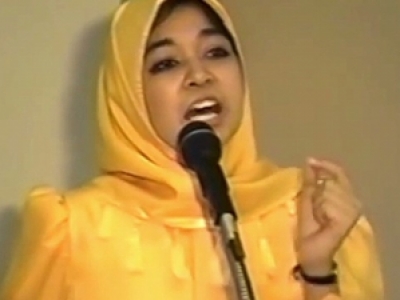






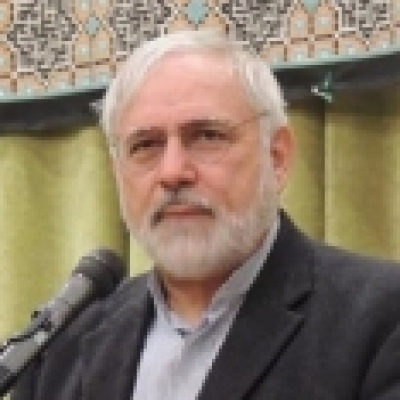
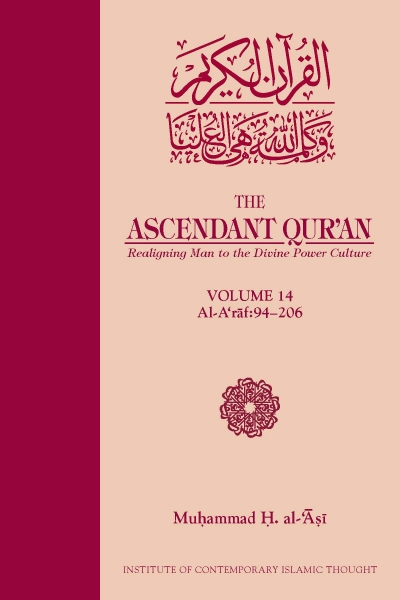
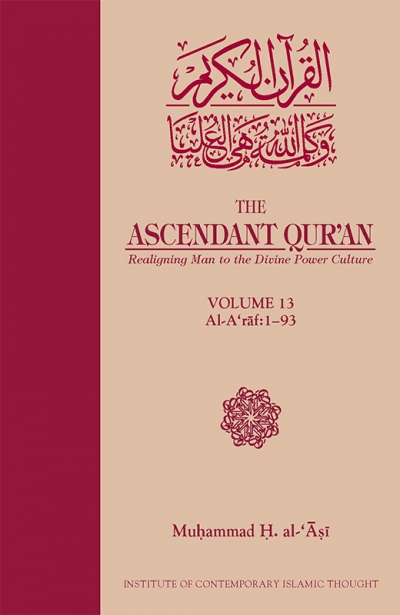
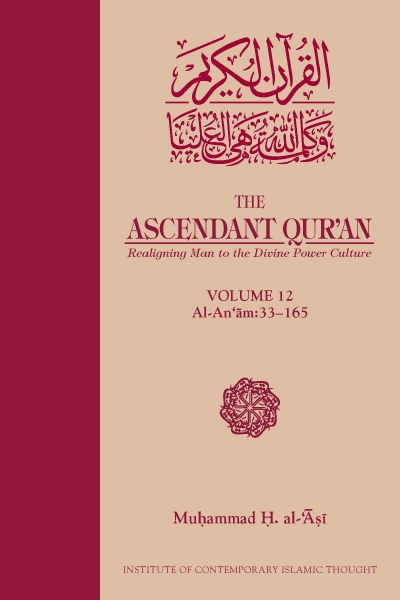
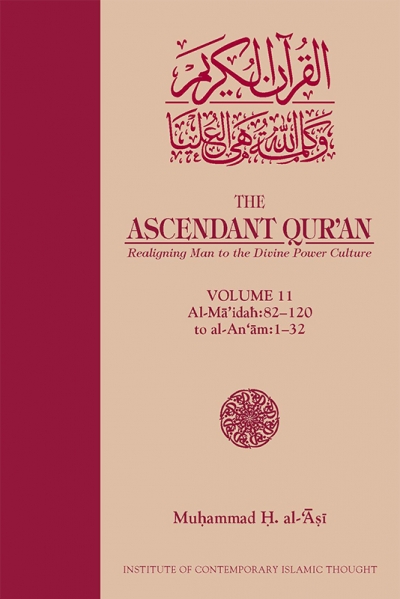
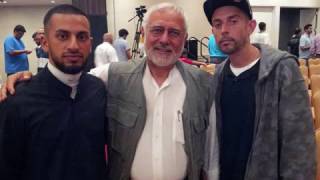
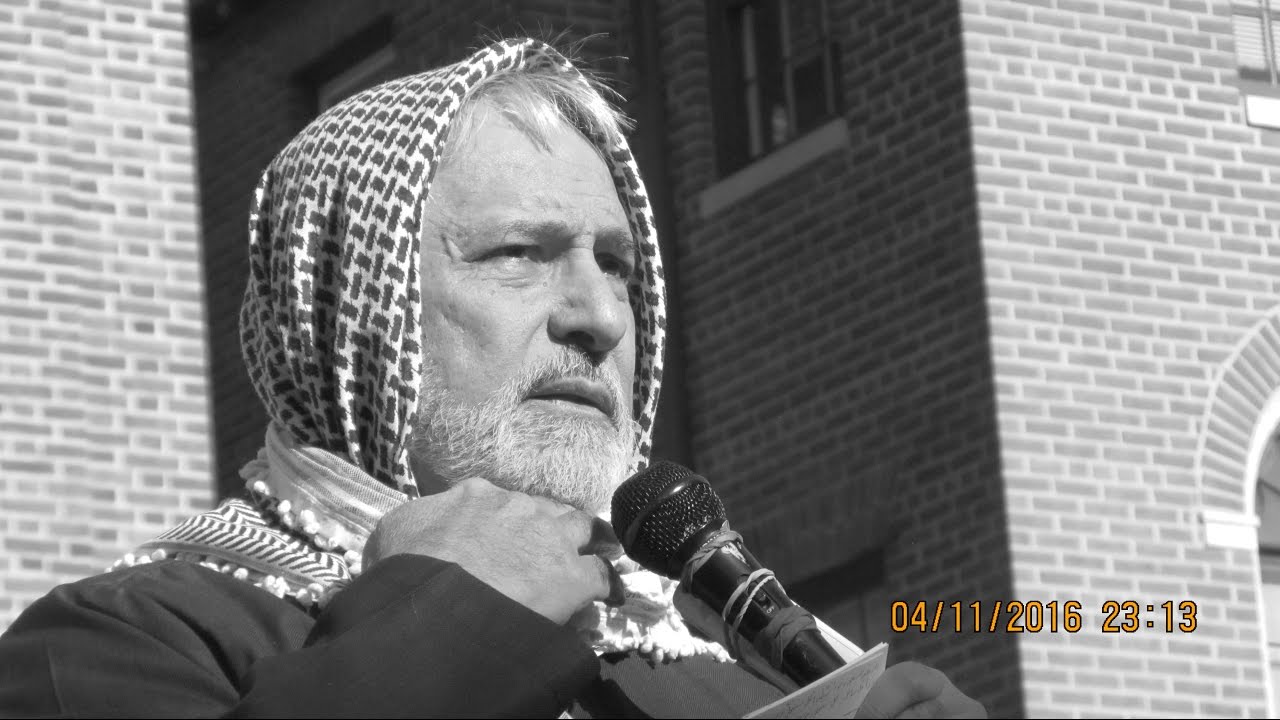
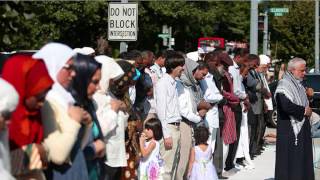
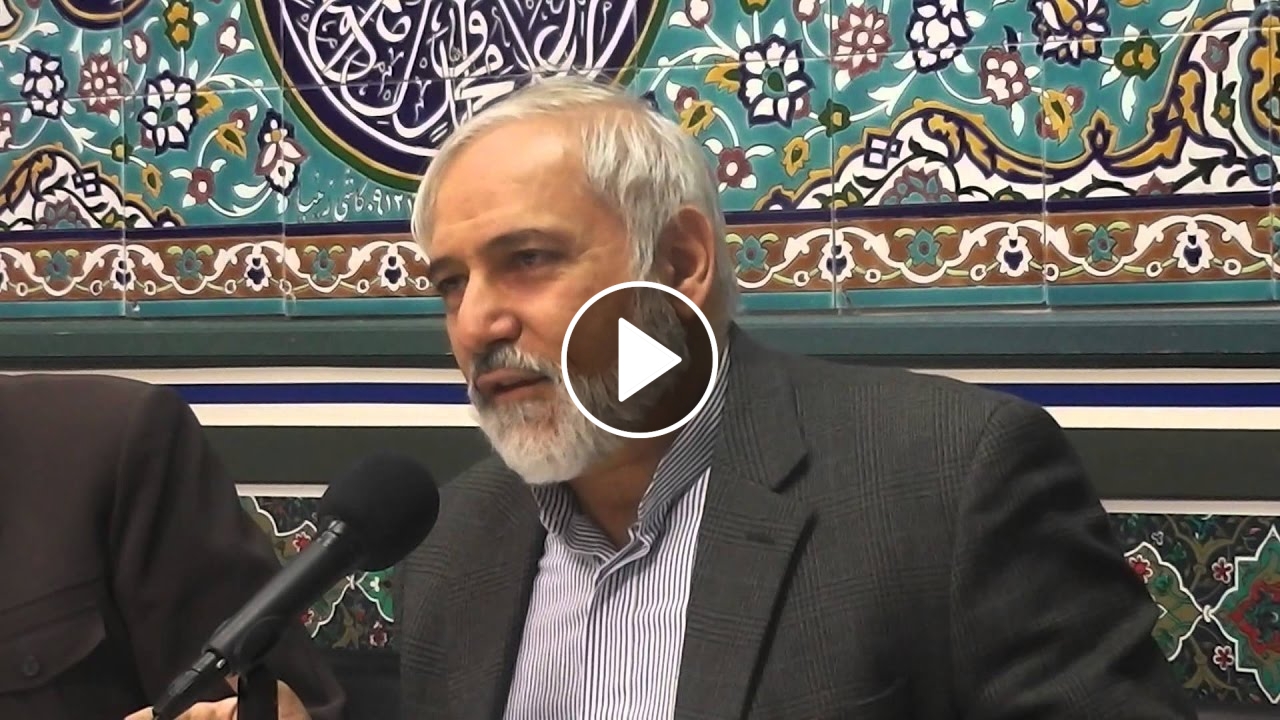
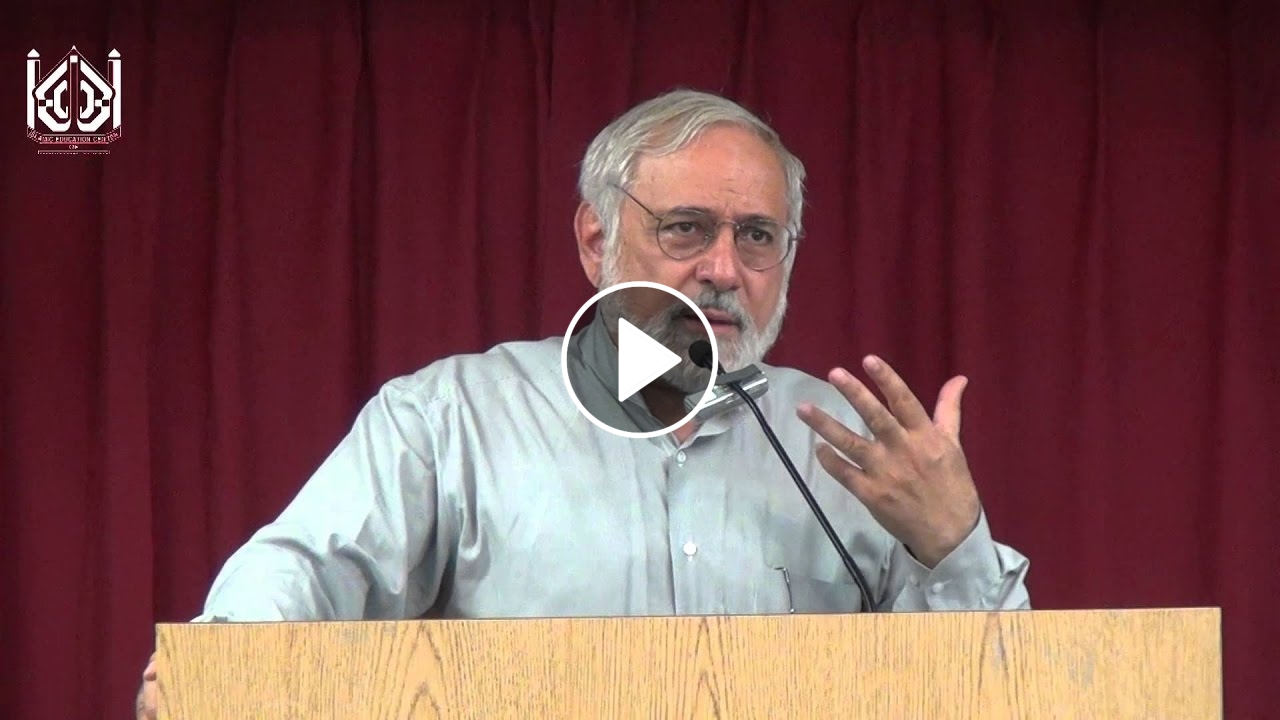
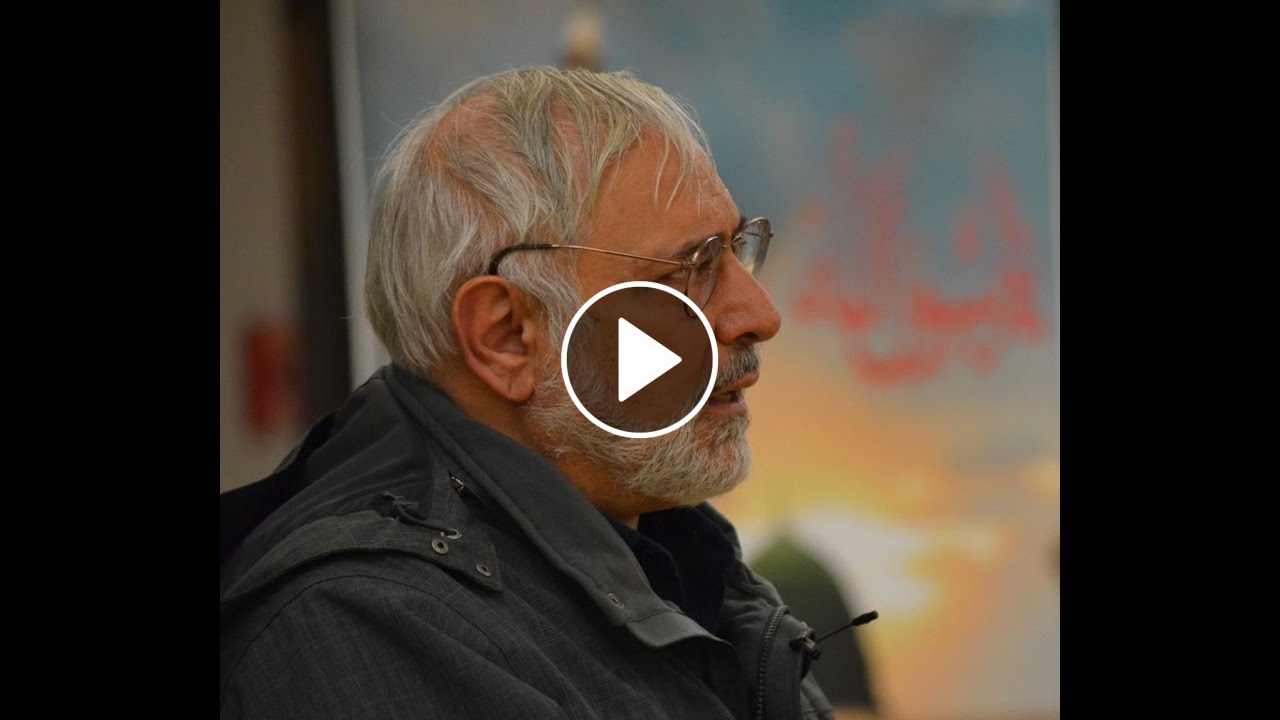
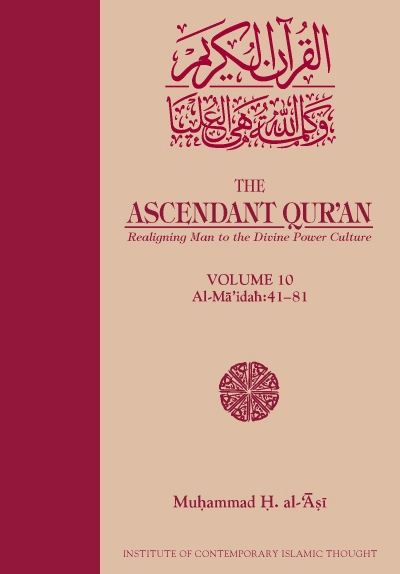
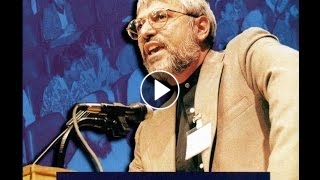
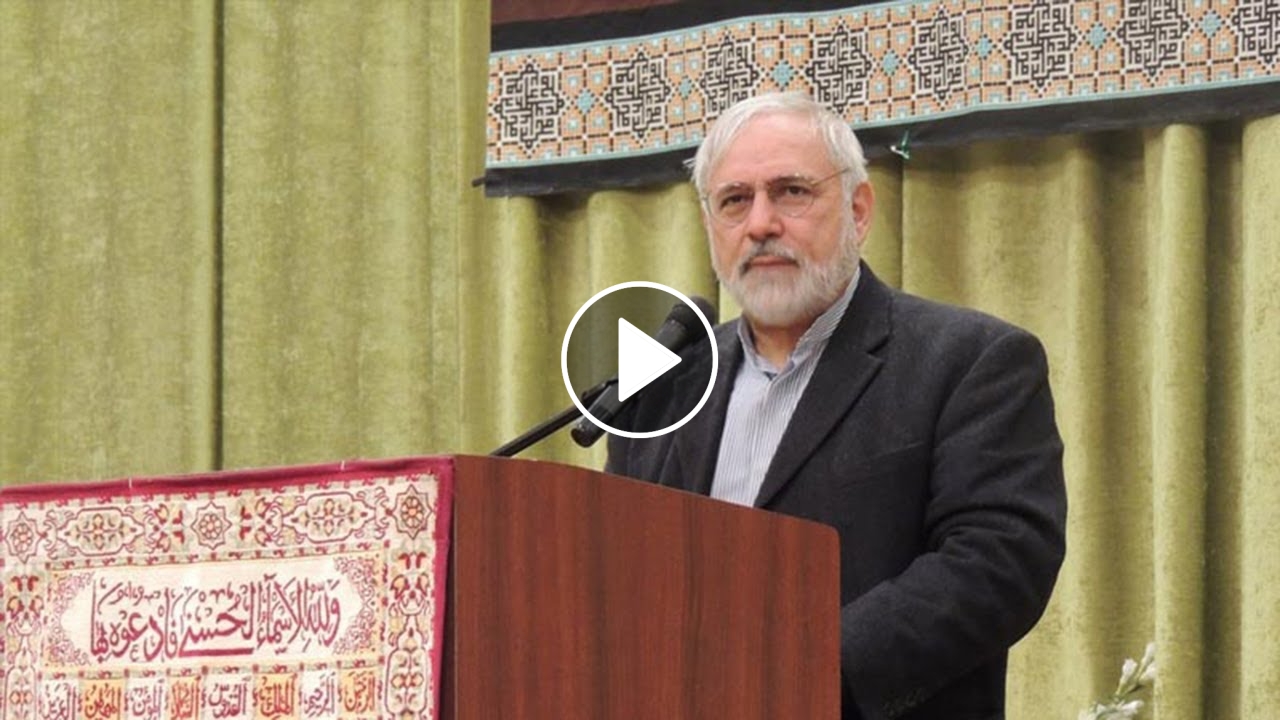
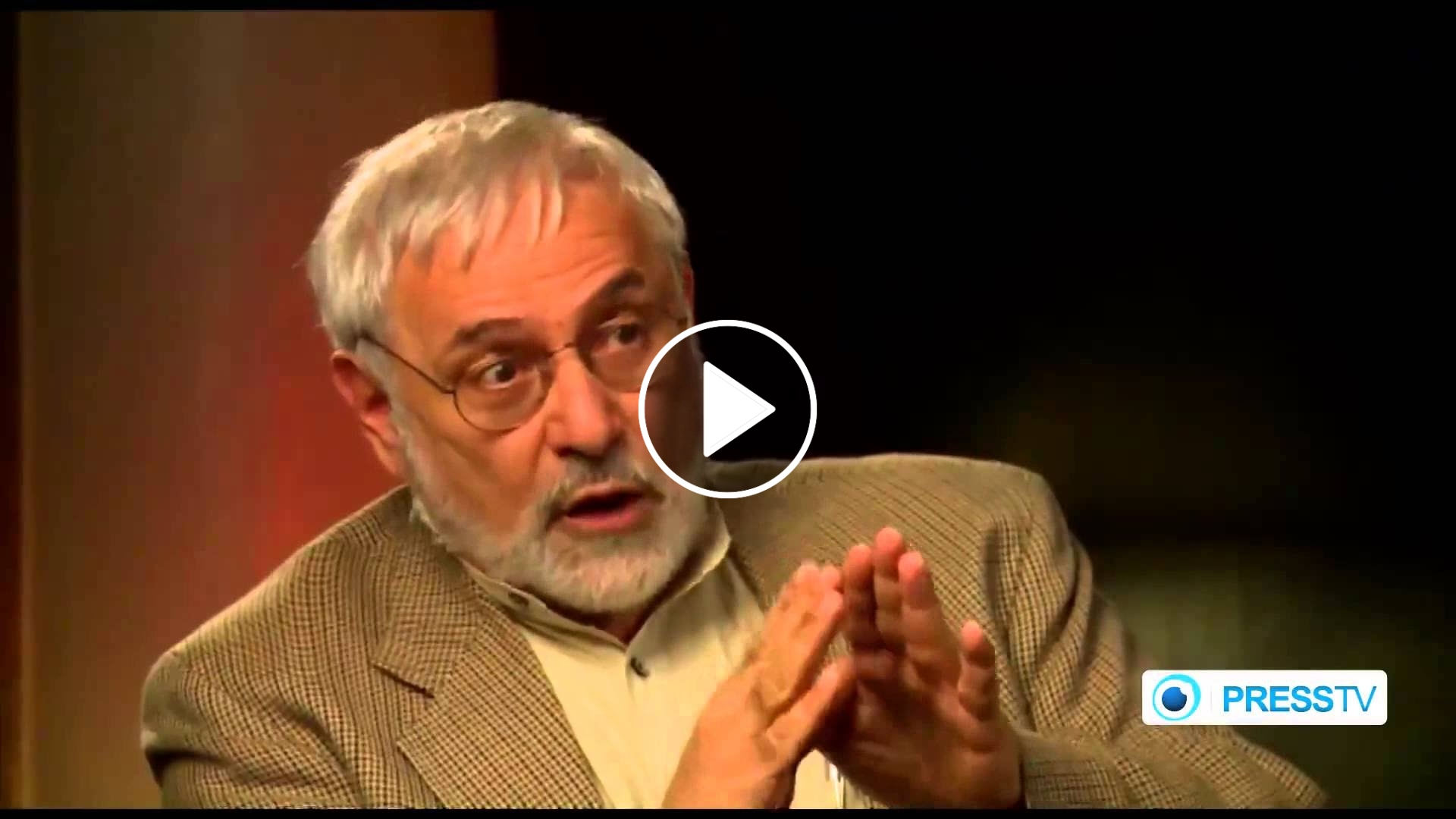
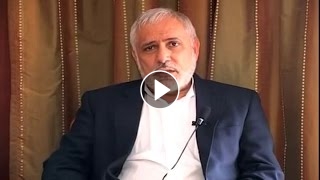
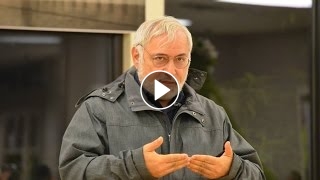
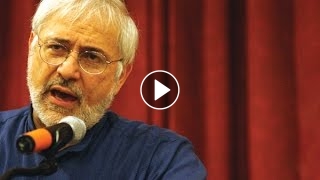
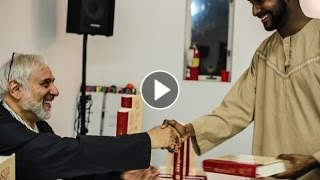
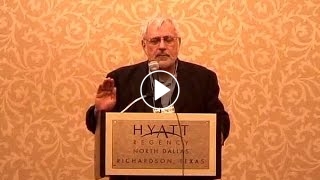
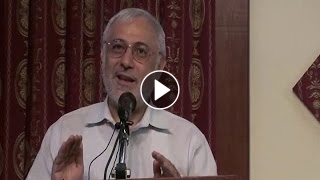
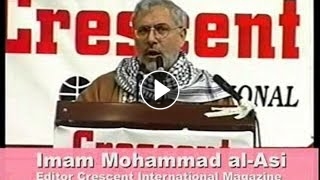
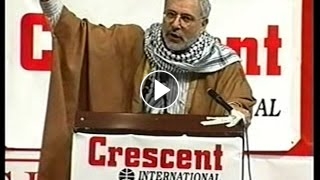
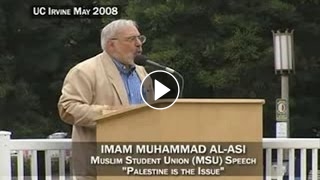
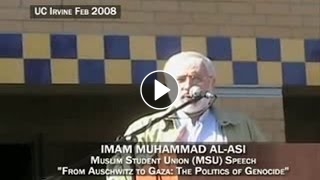
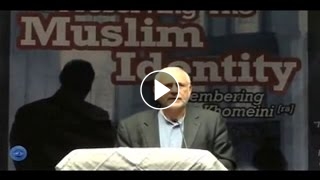
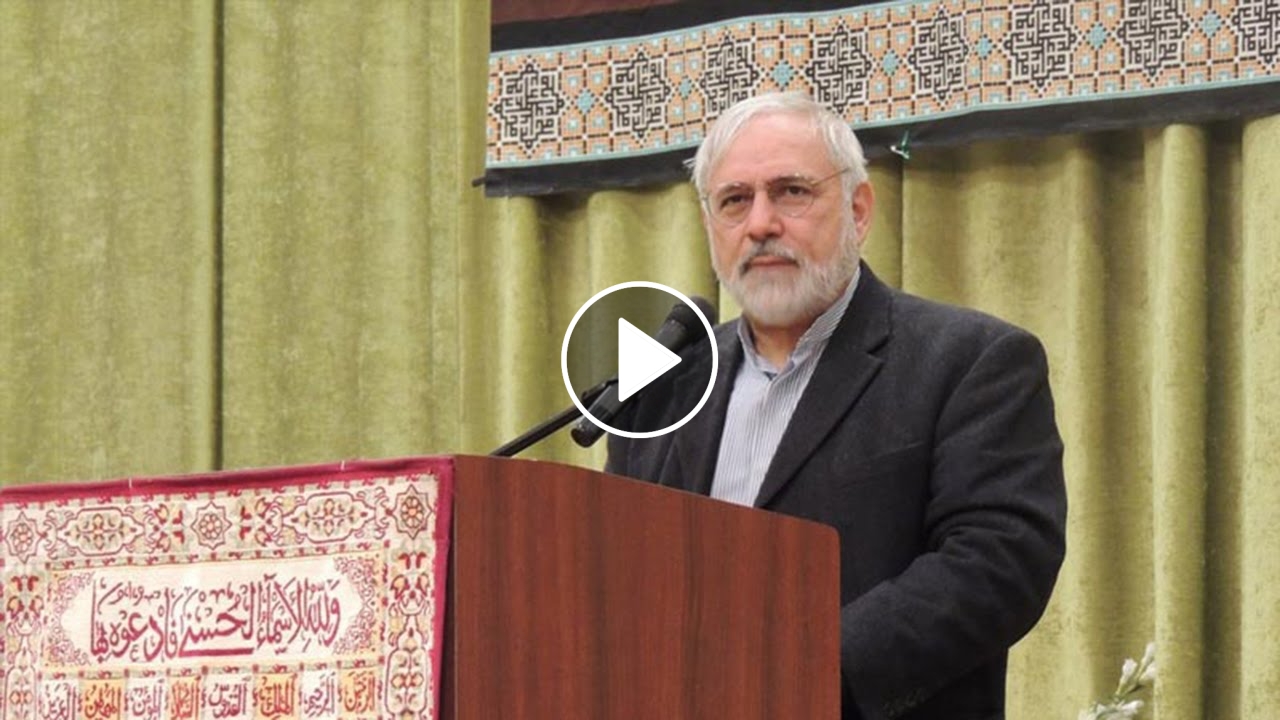
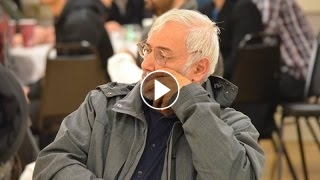
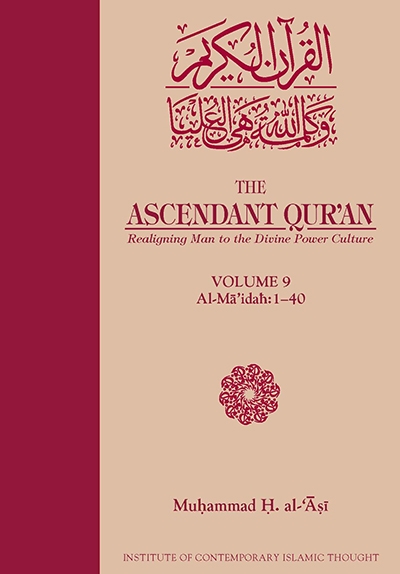
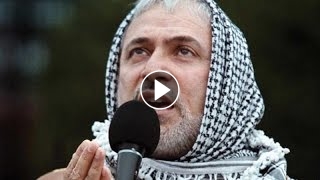
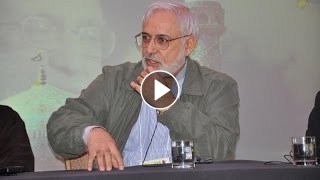
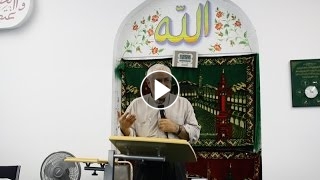
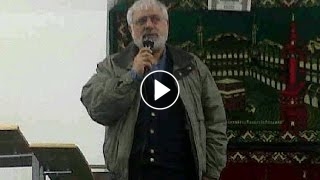
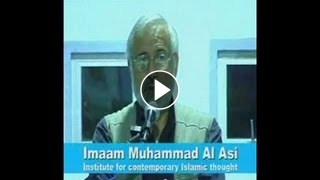
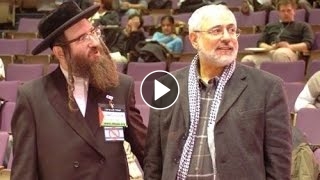
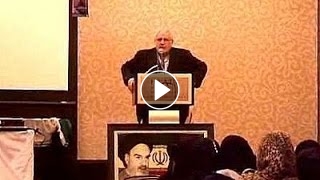
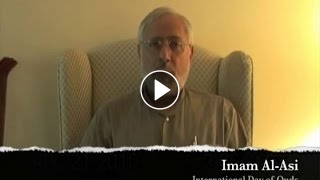

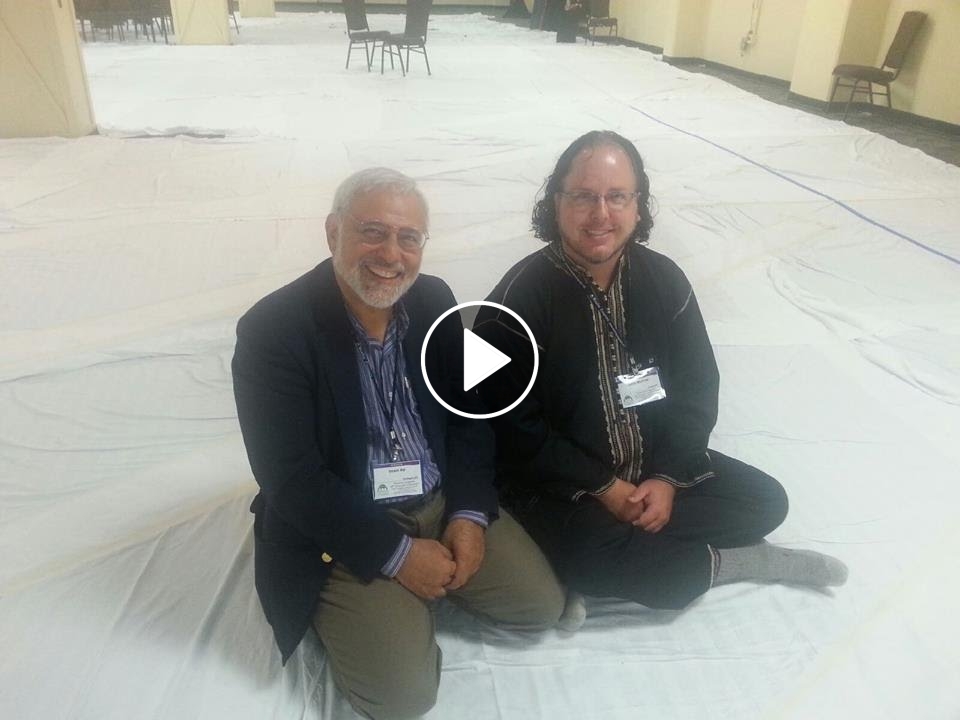
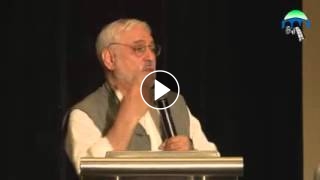
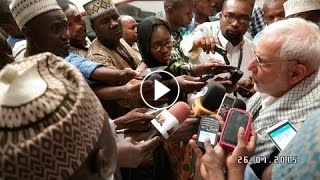
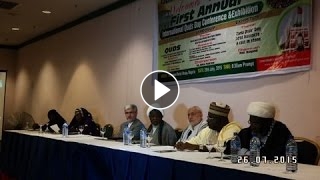

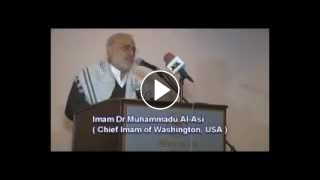
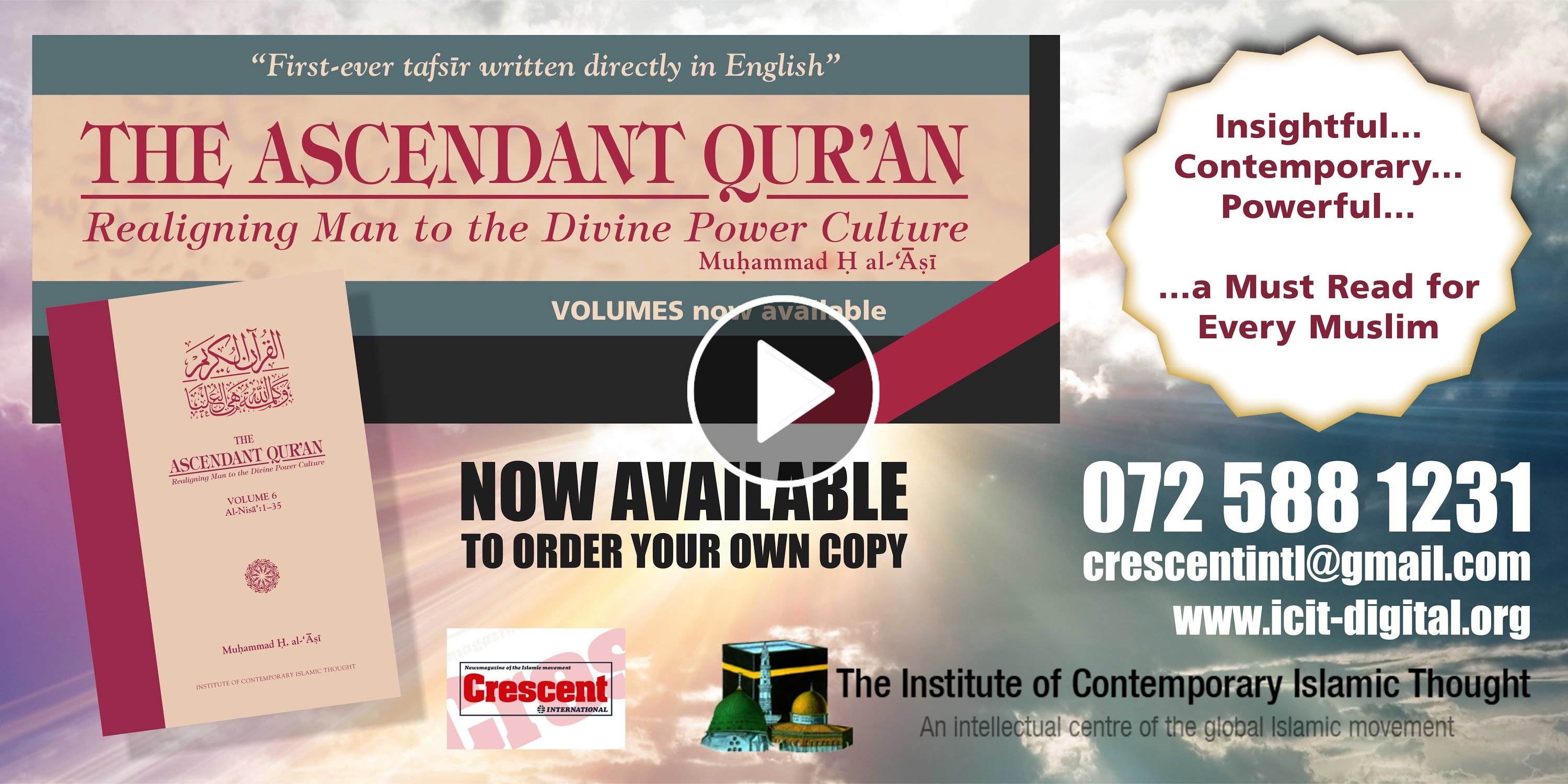
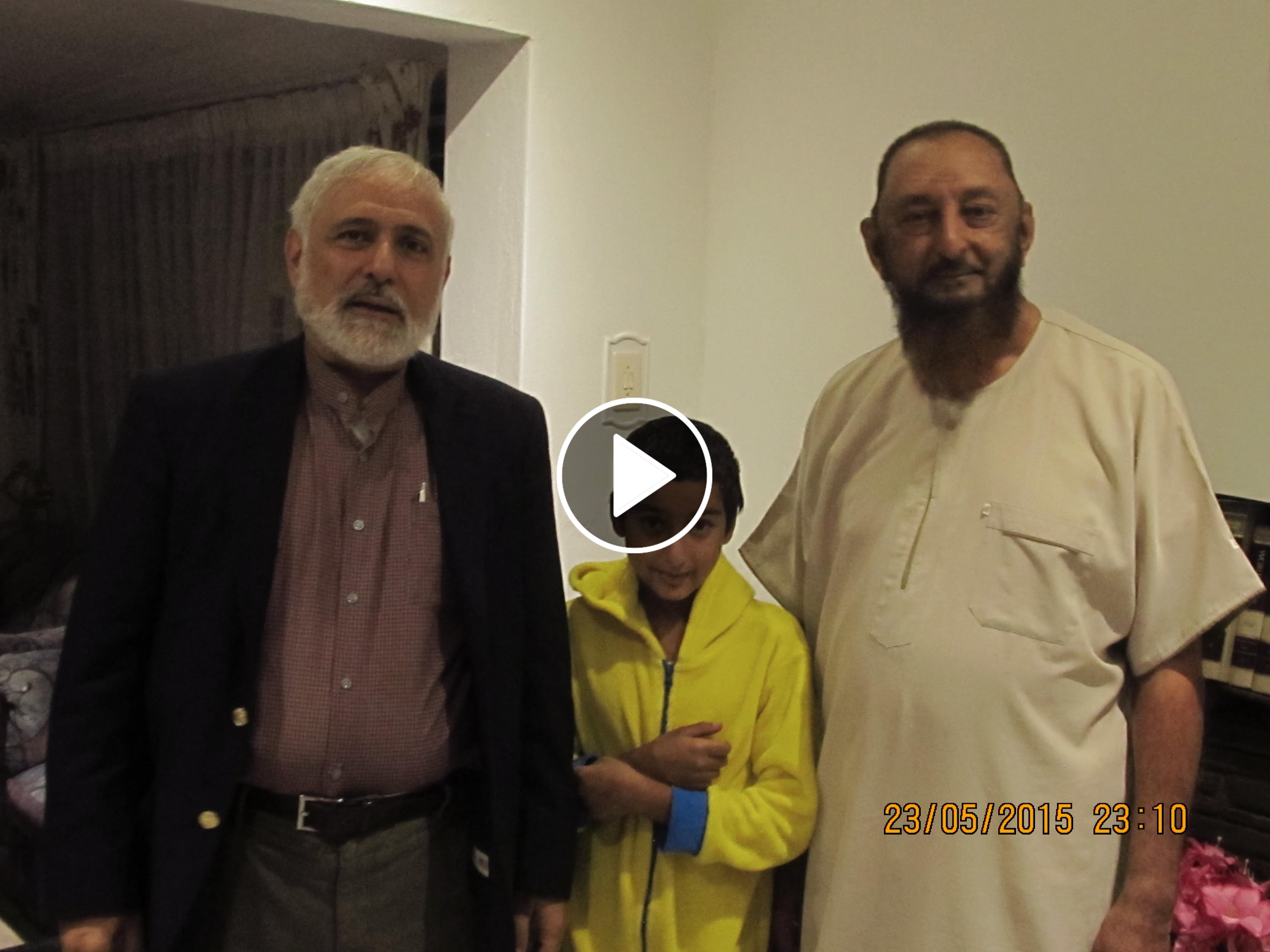
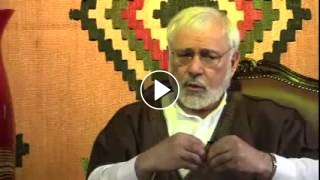
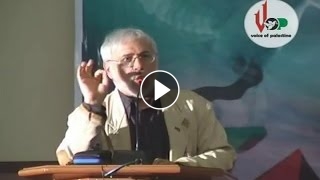
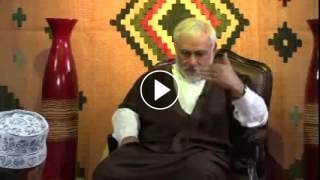
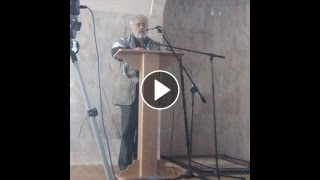
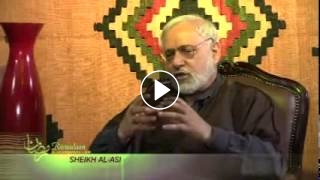
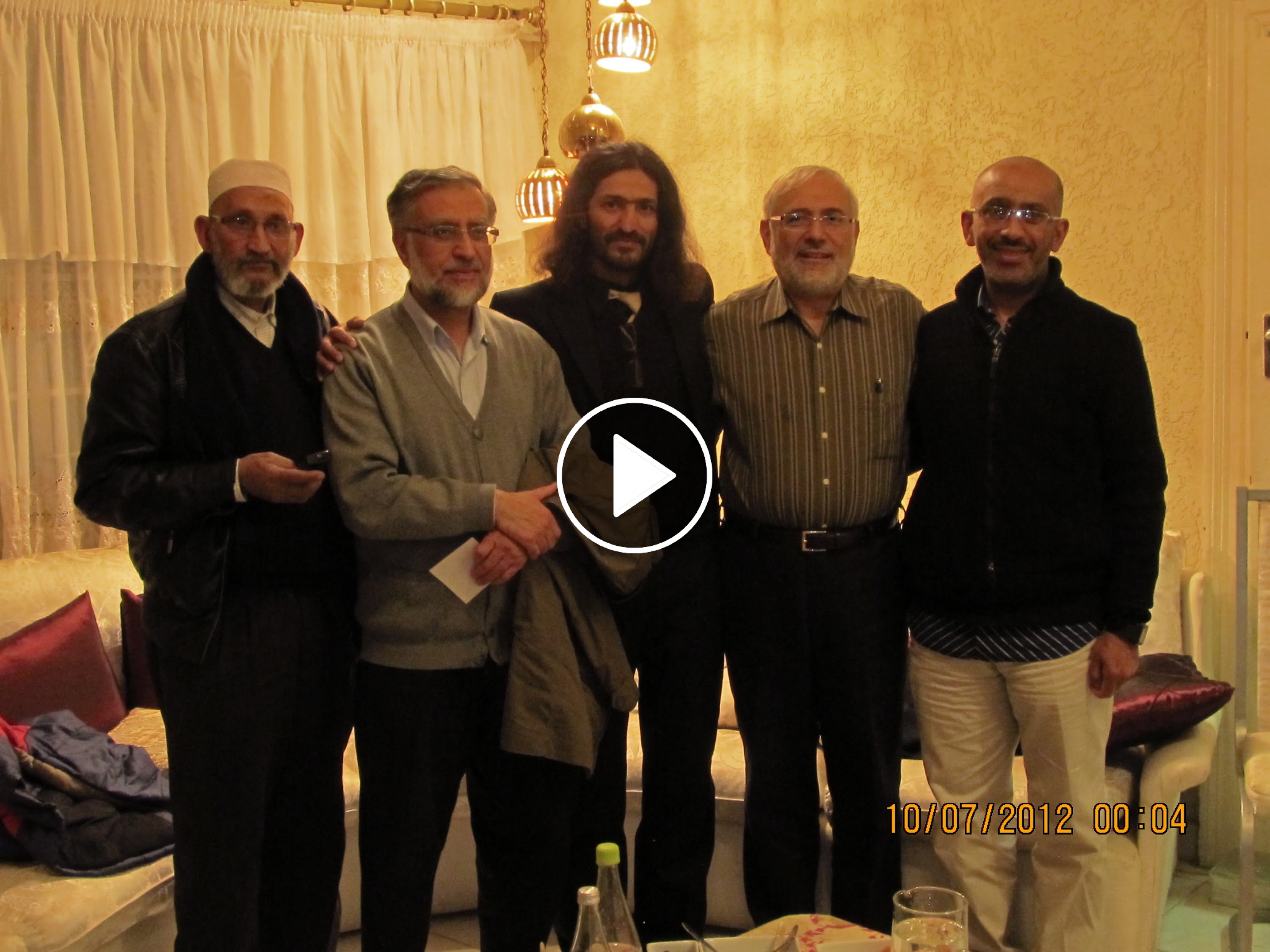
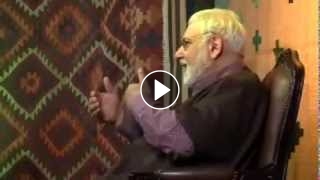

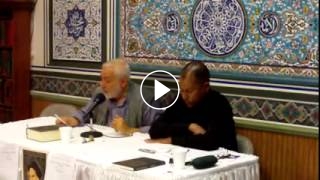

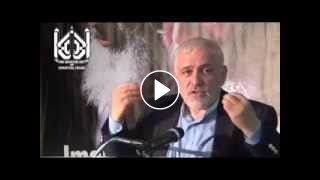
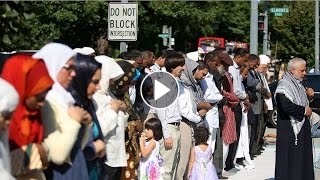
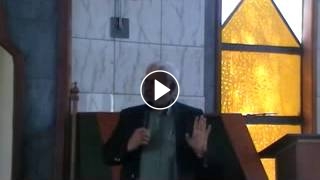
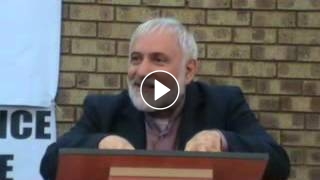
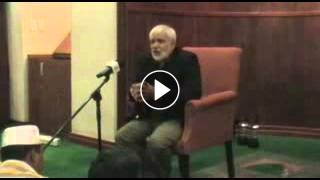
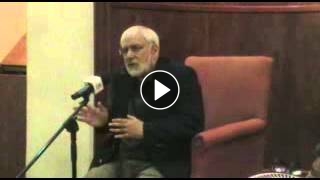
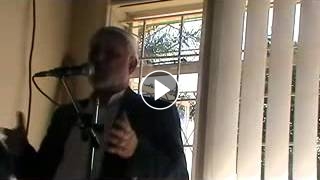
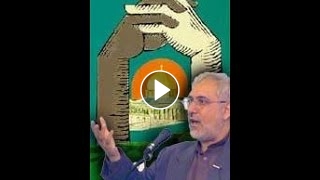
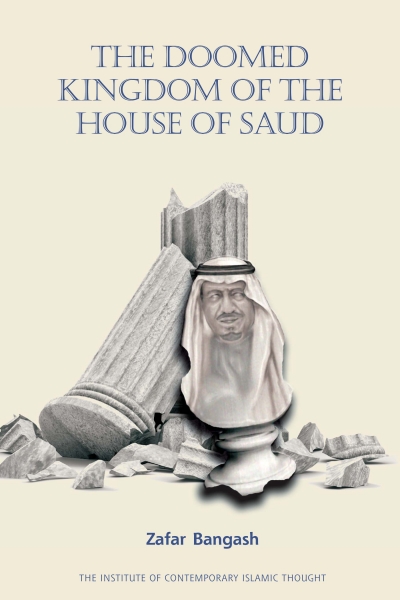
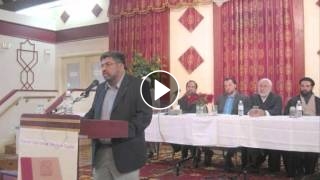

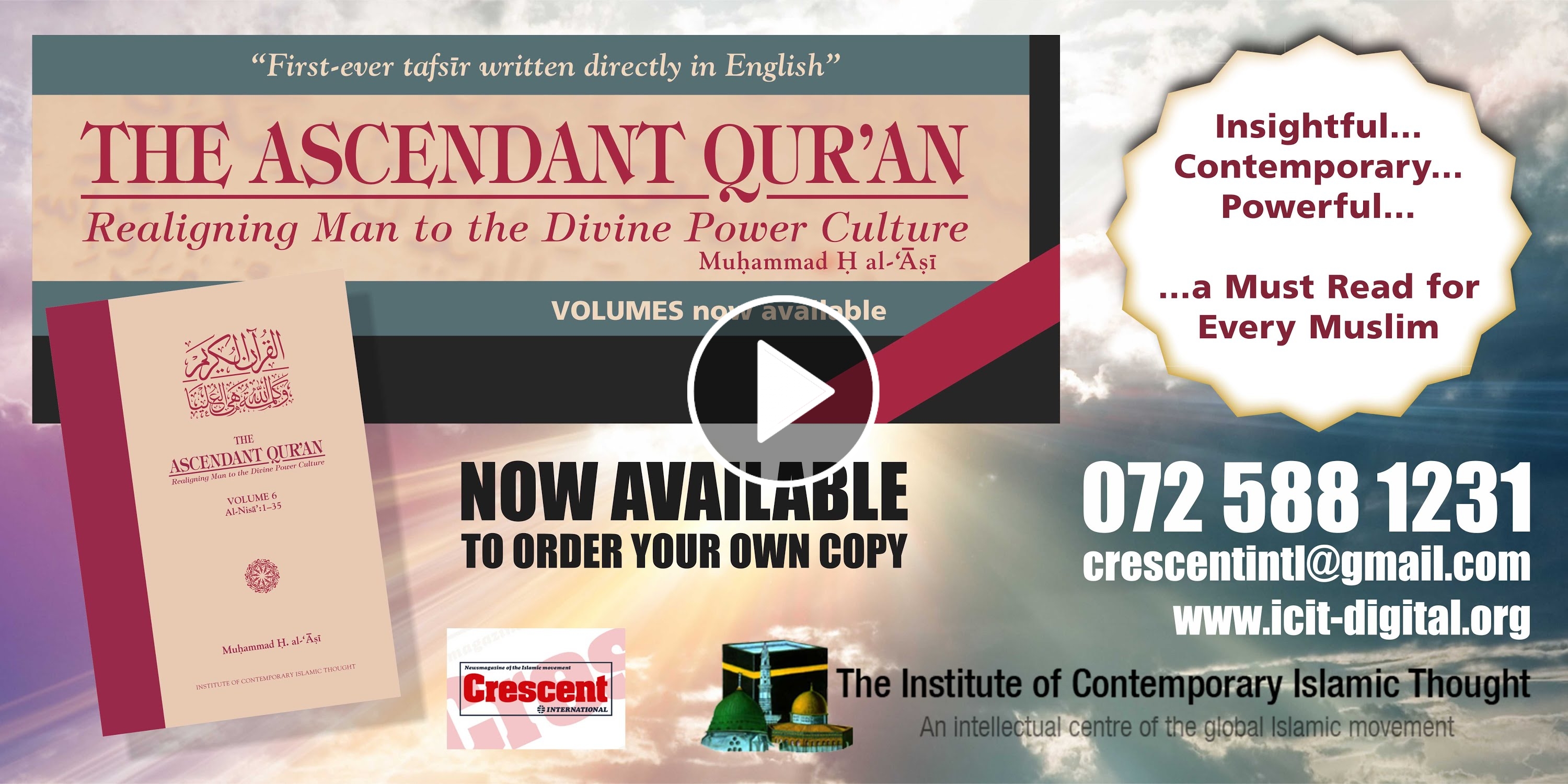
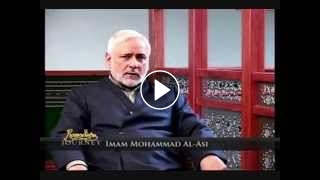
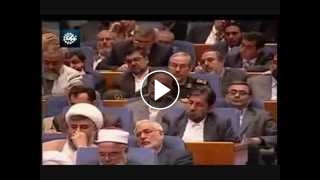

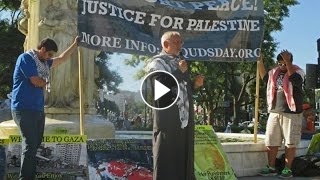
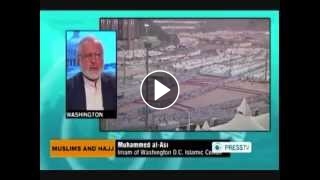
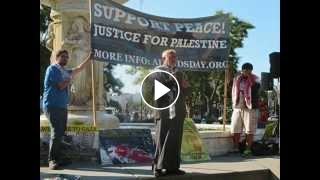
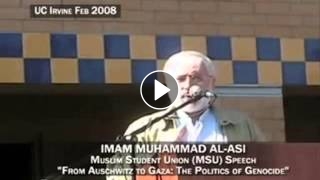
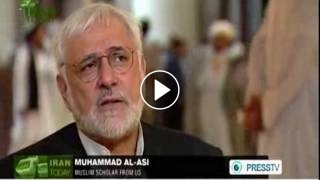










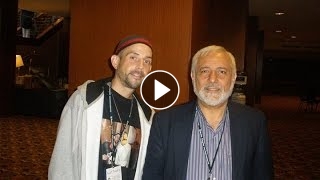
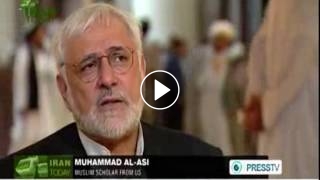
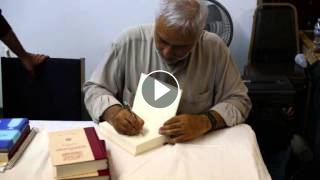





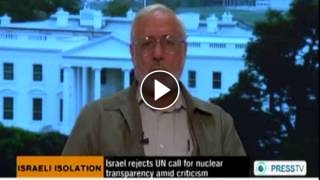


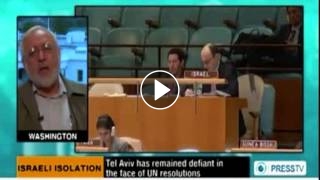

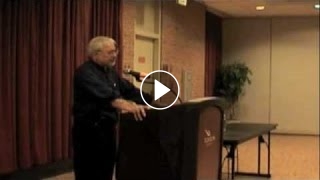



























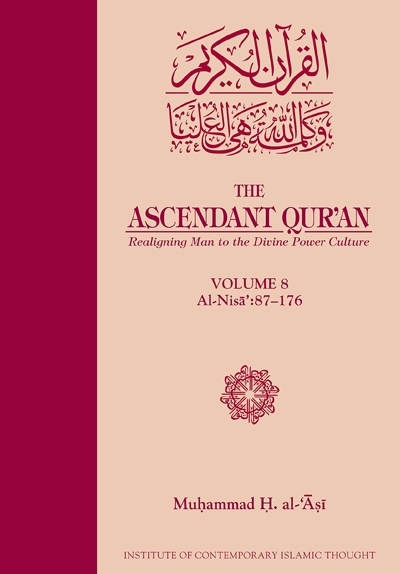
















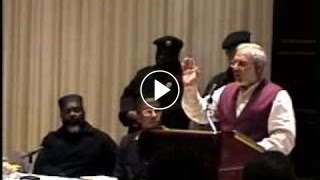









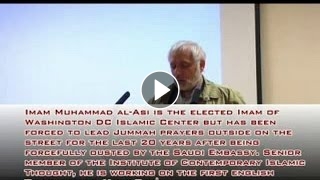




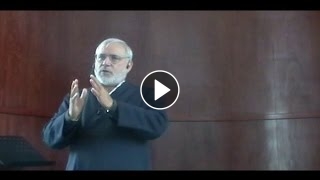























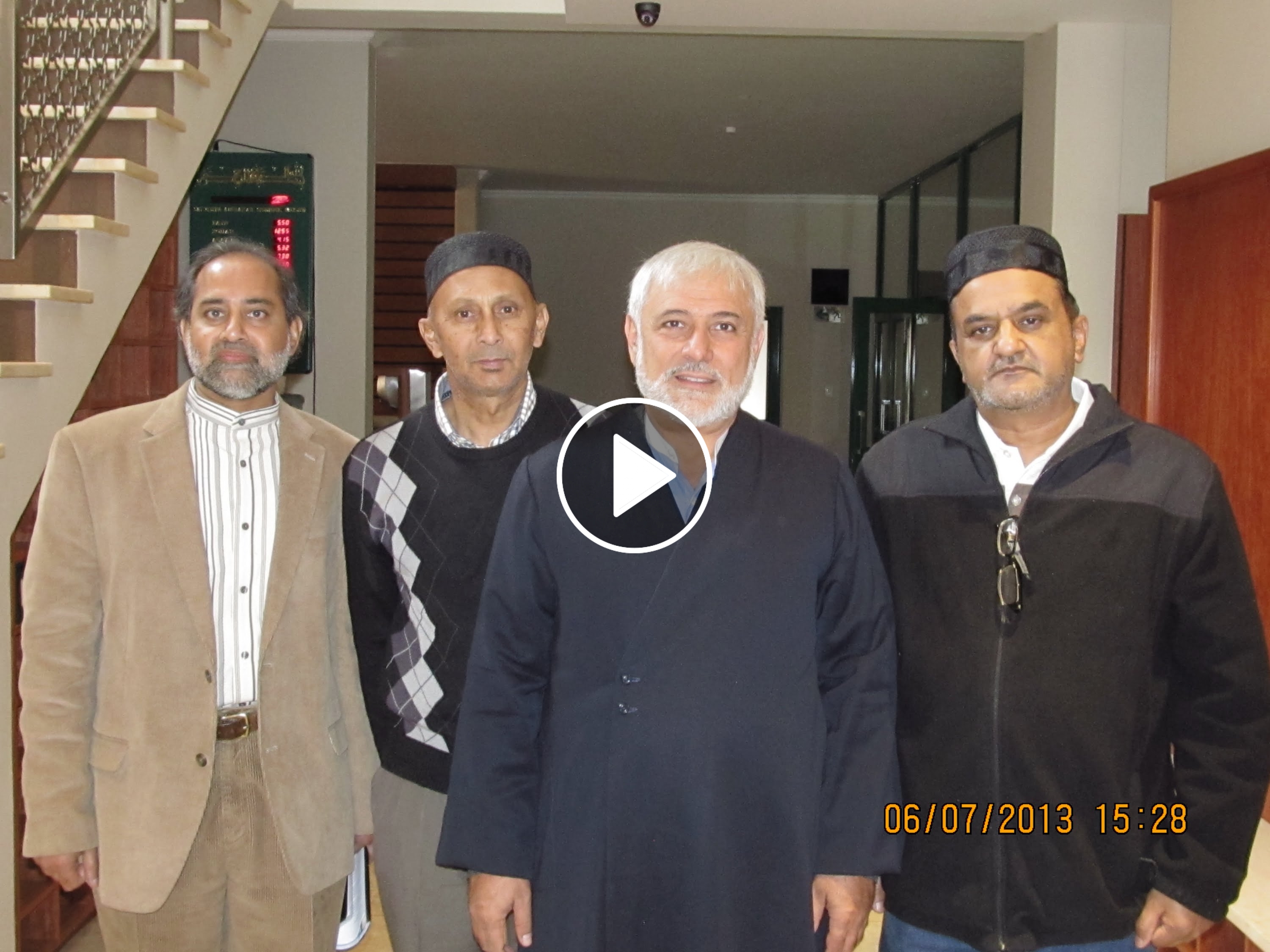













































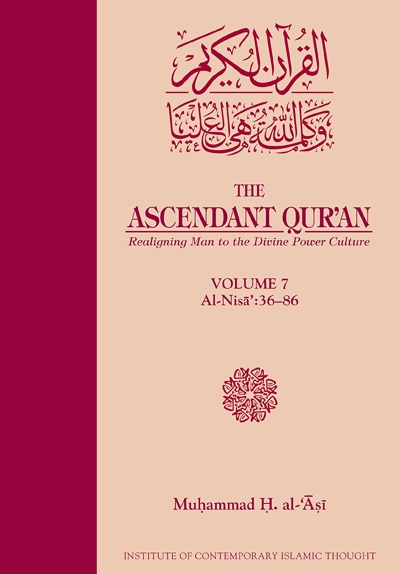














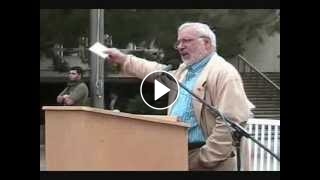
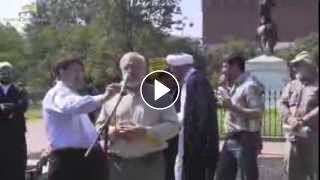
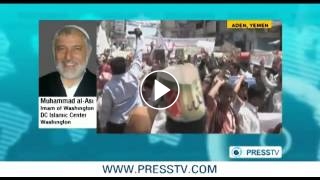









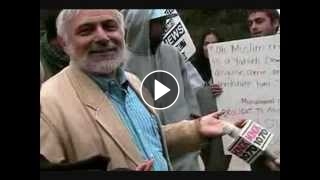







































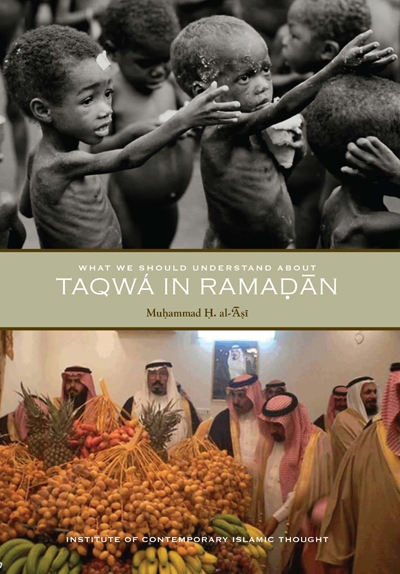




https://crescent.icit-digital.org/authors/muhammad-h-al-asi
ReplyDelete